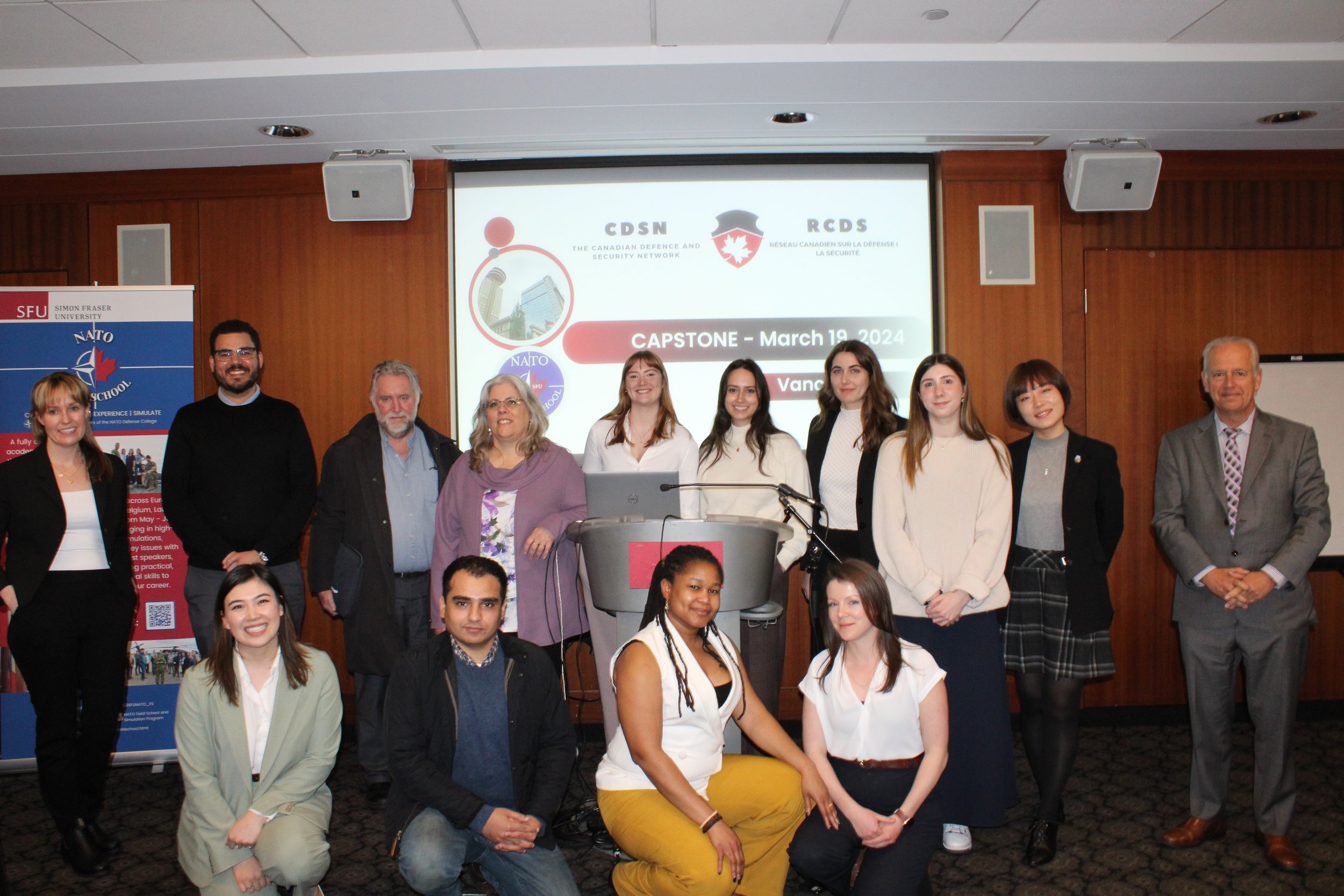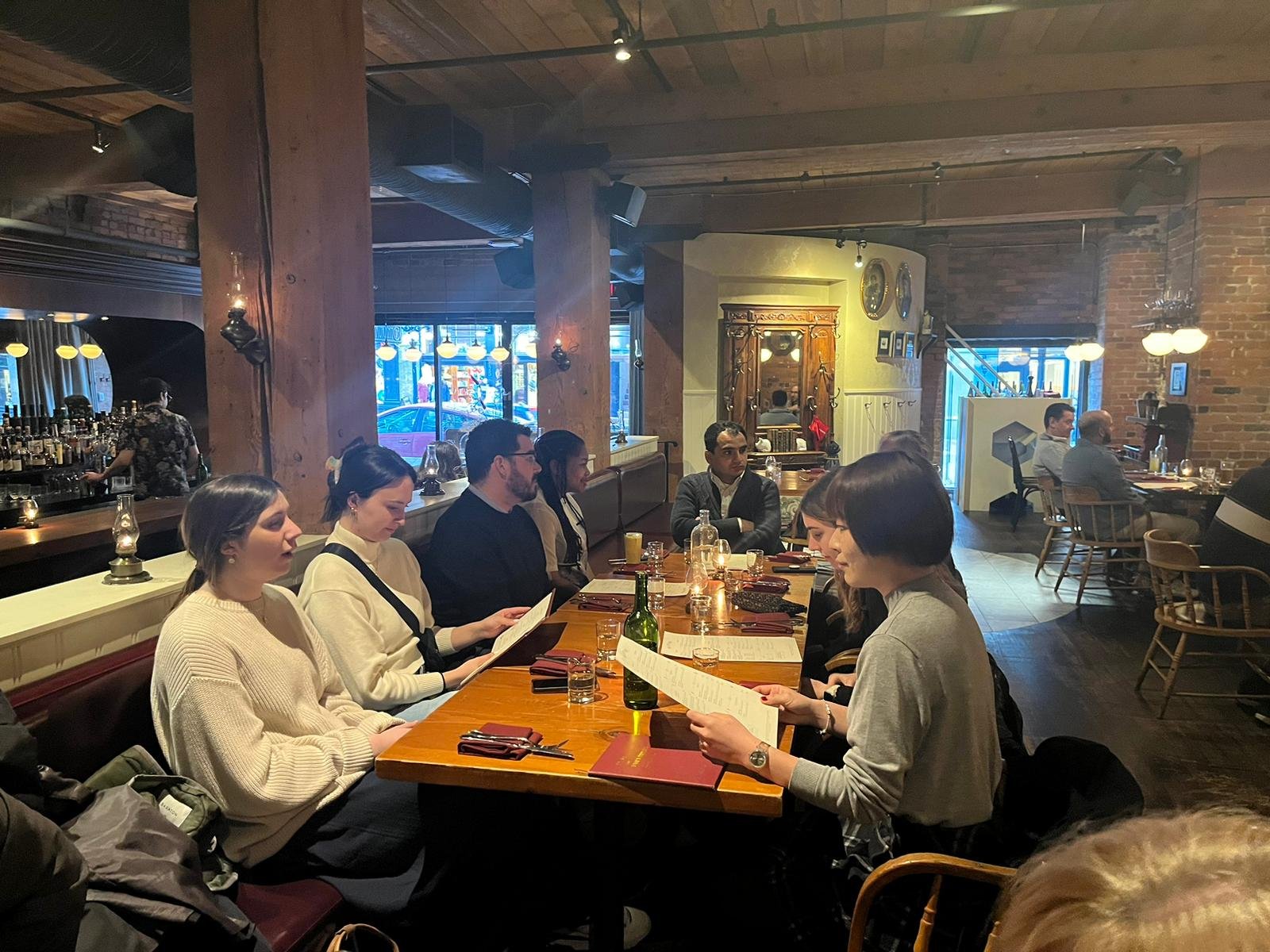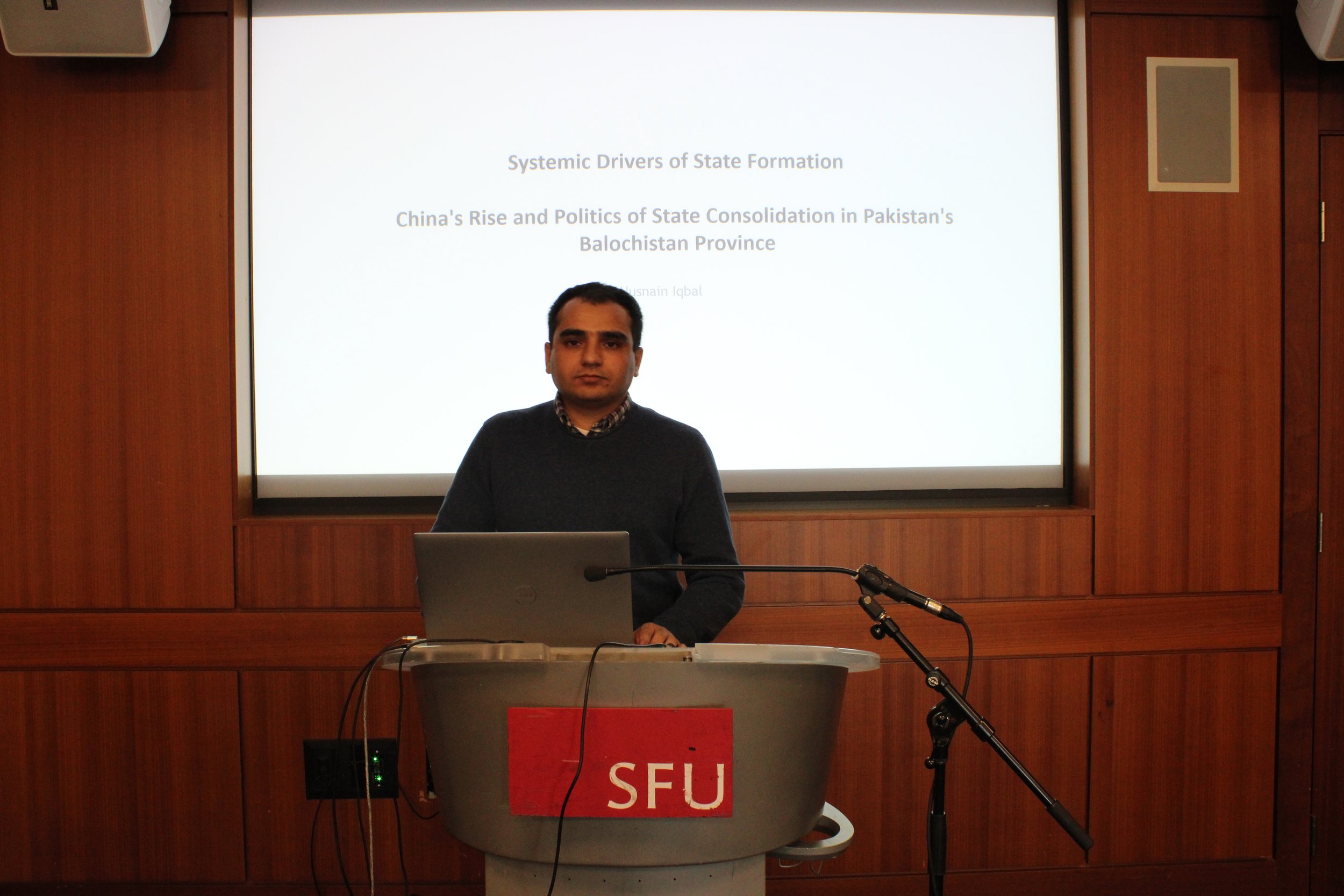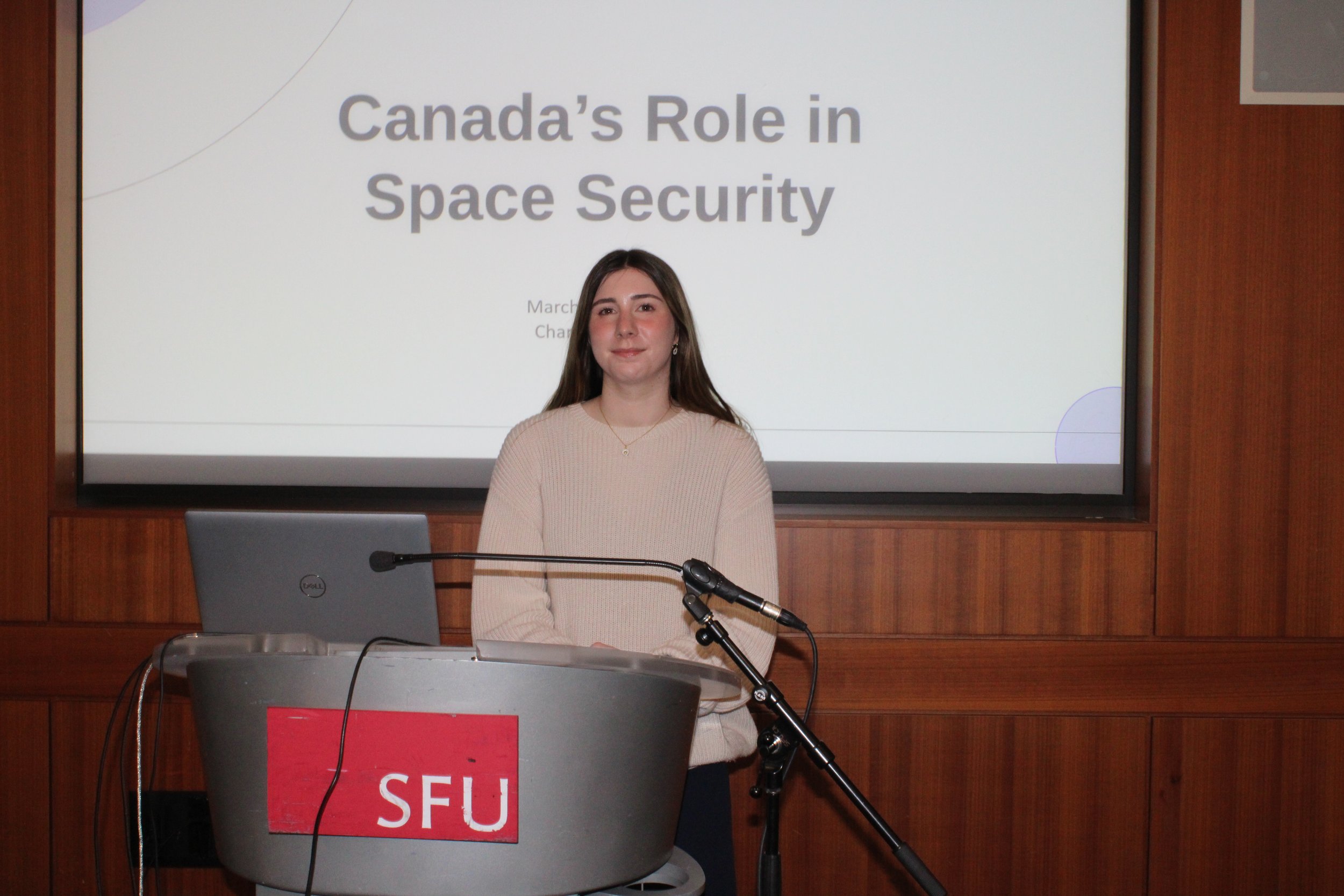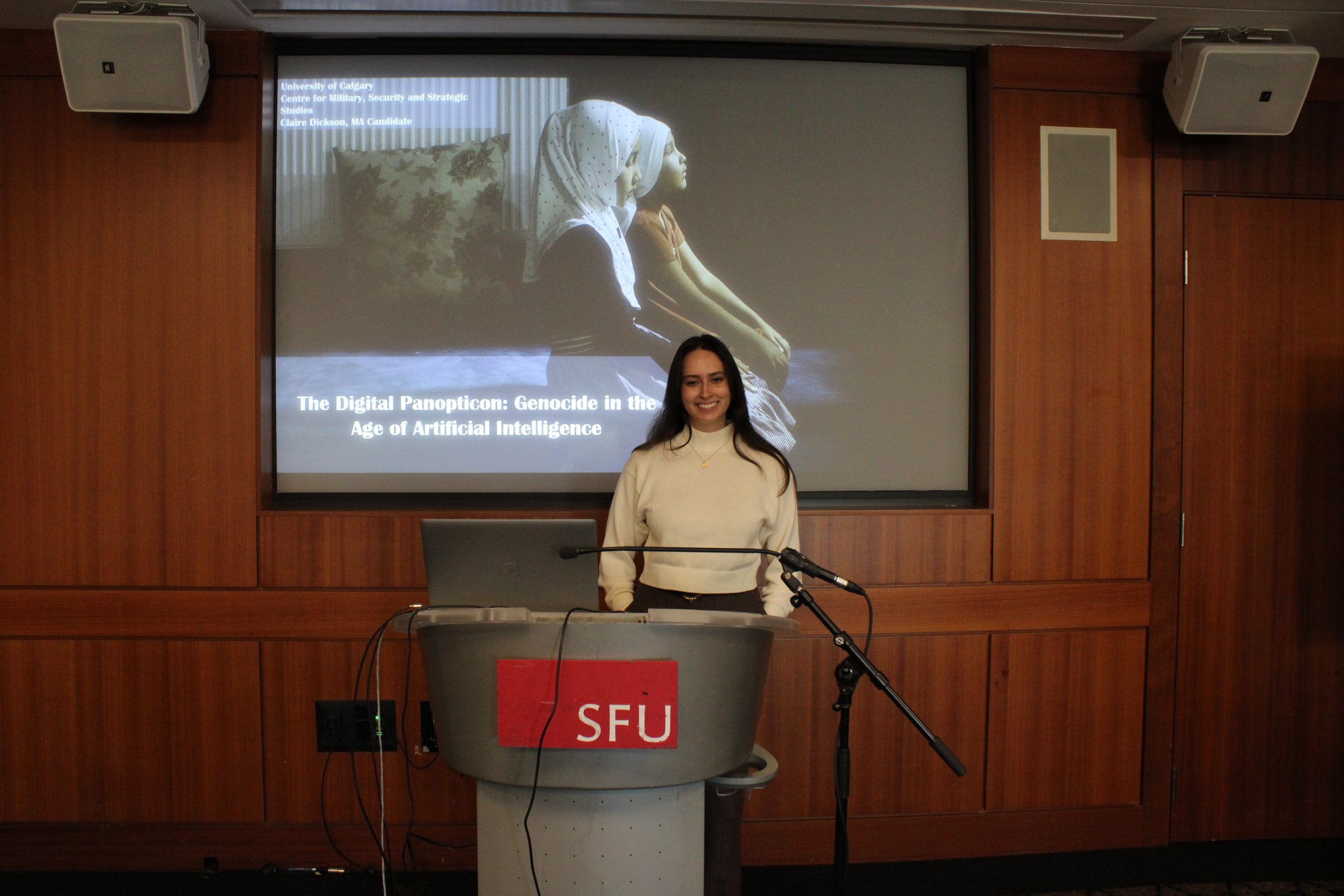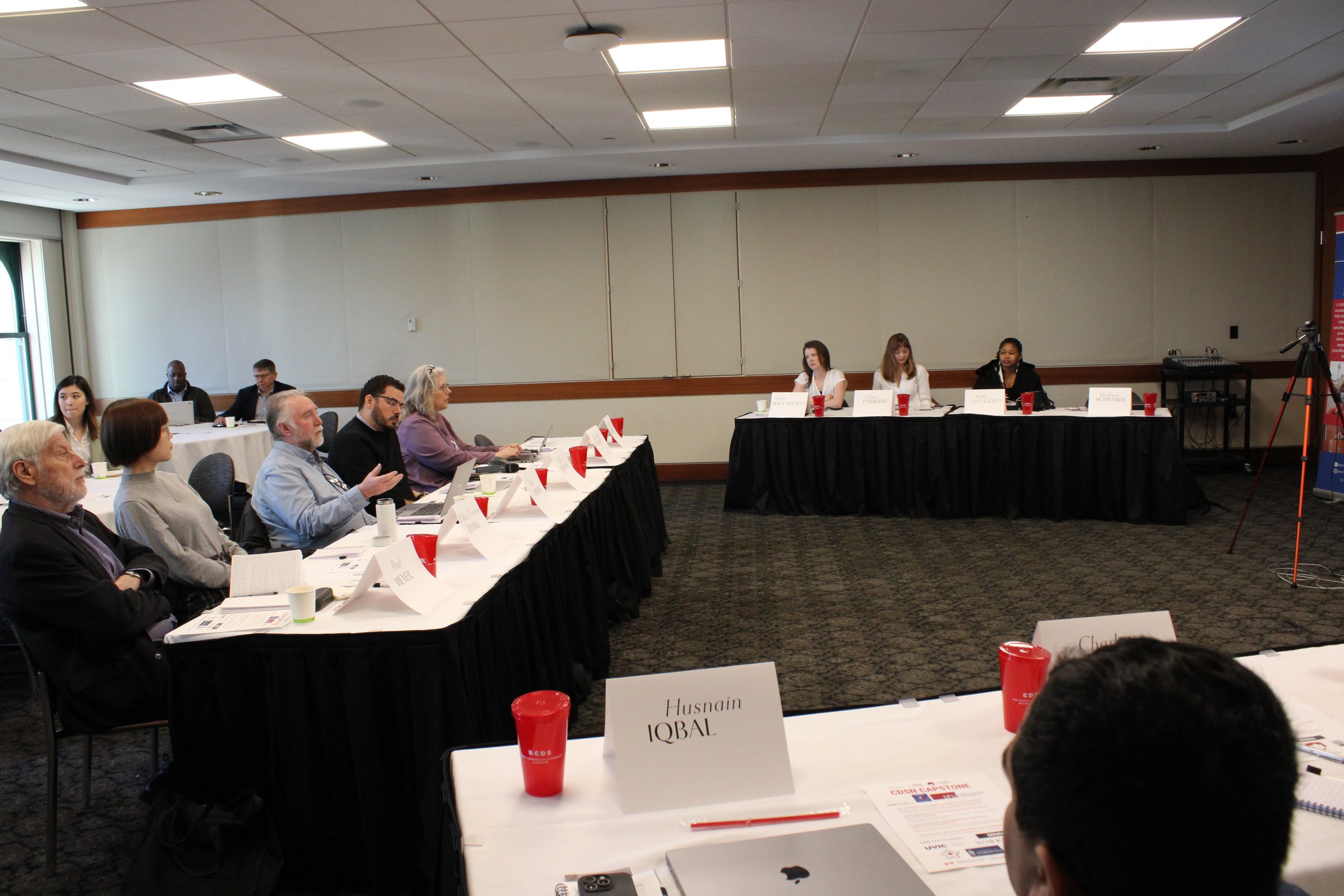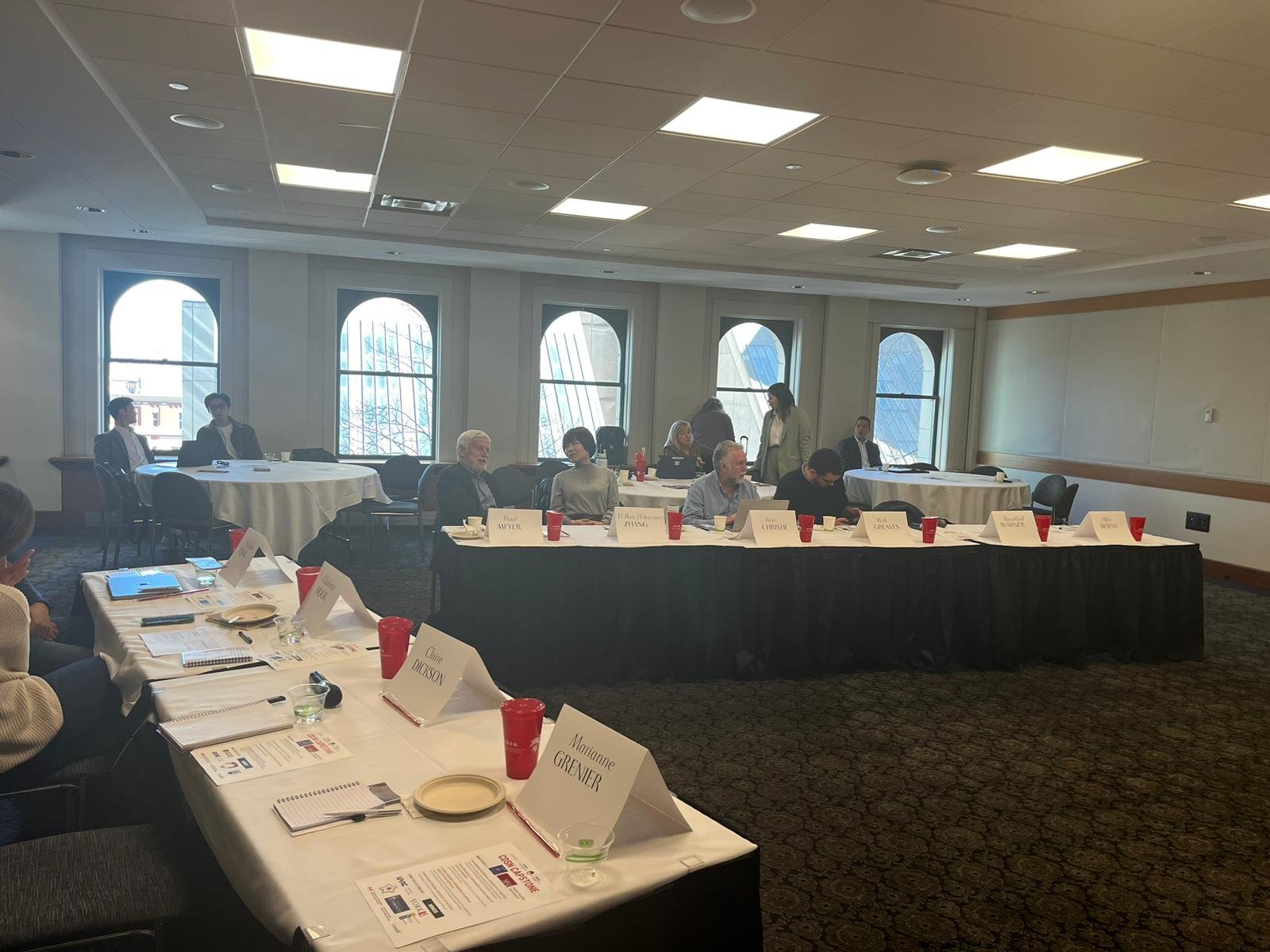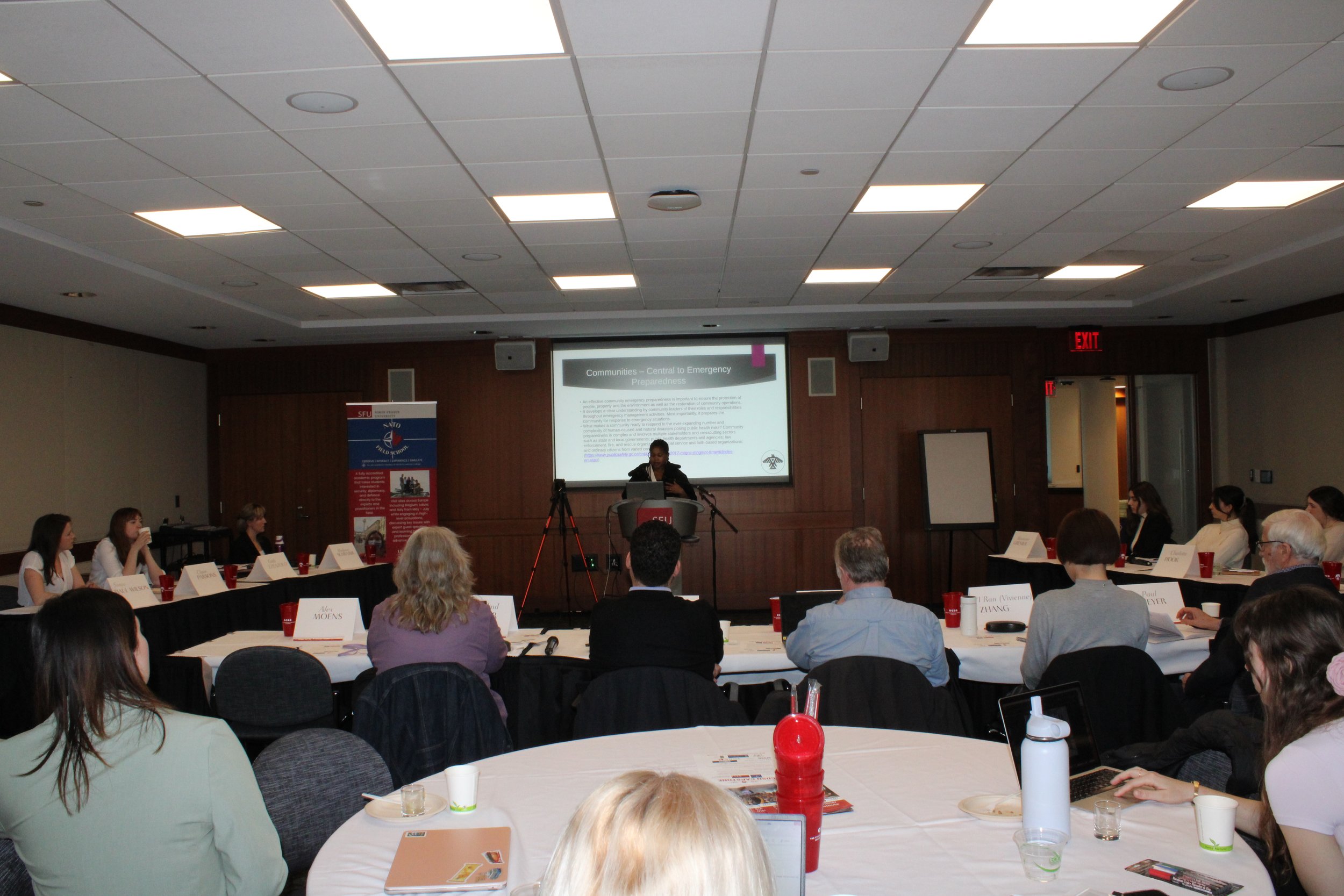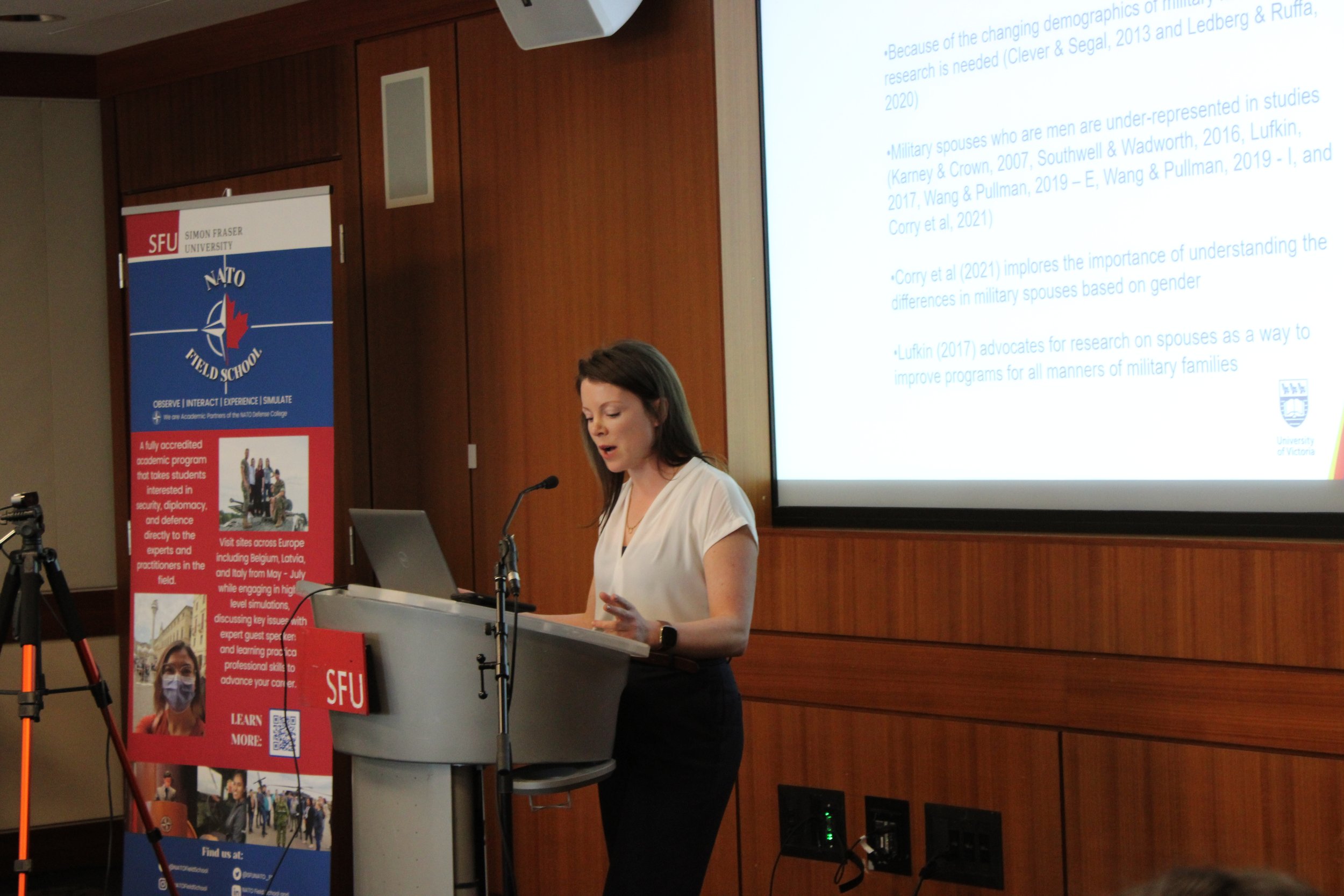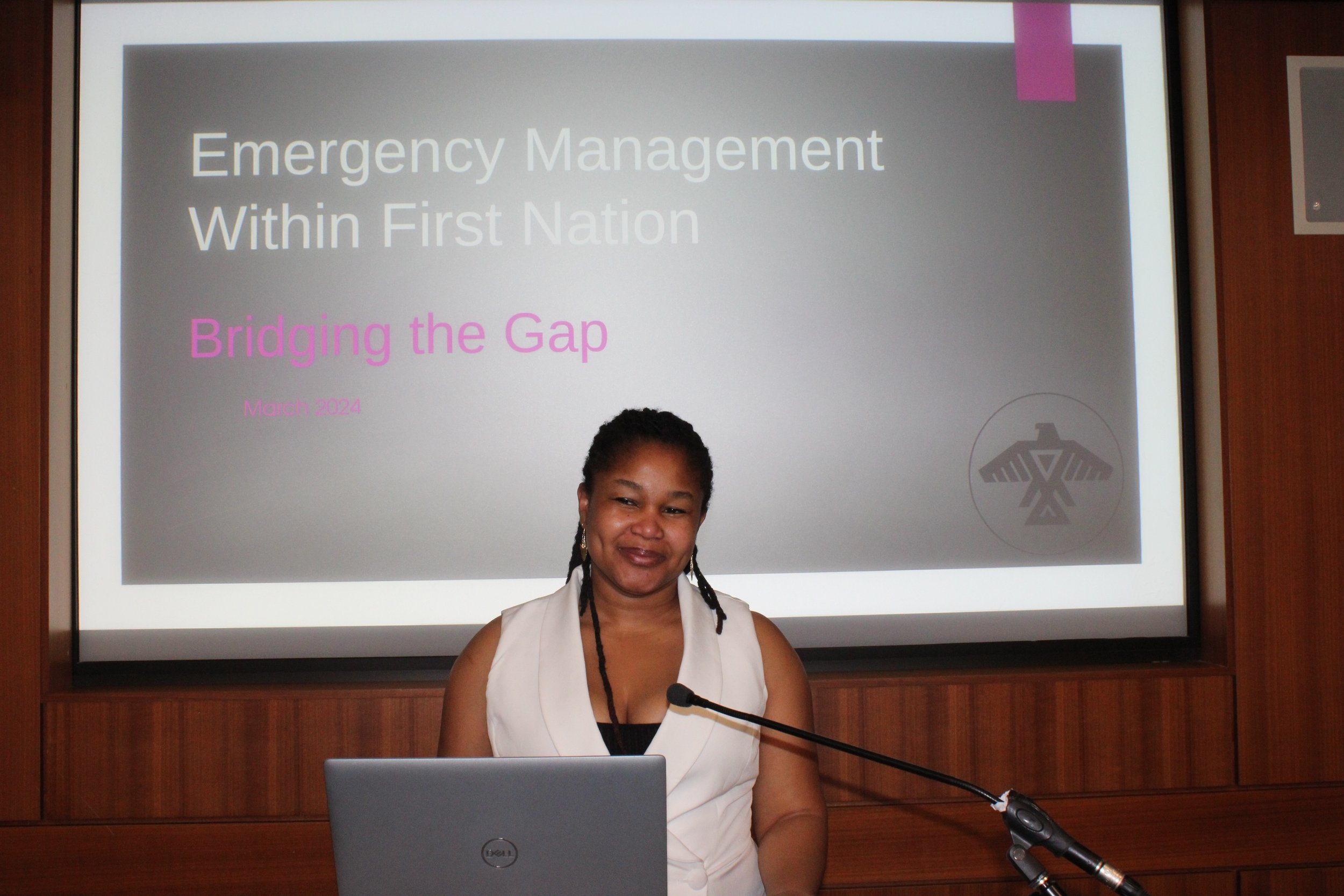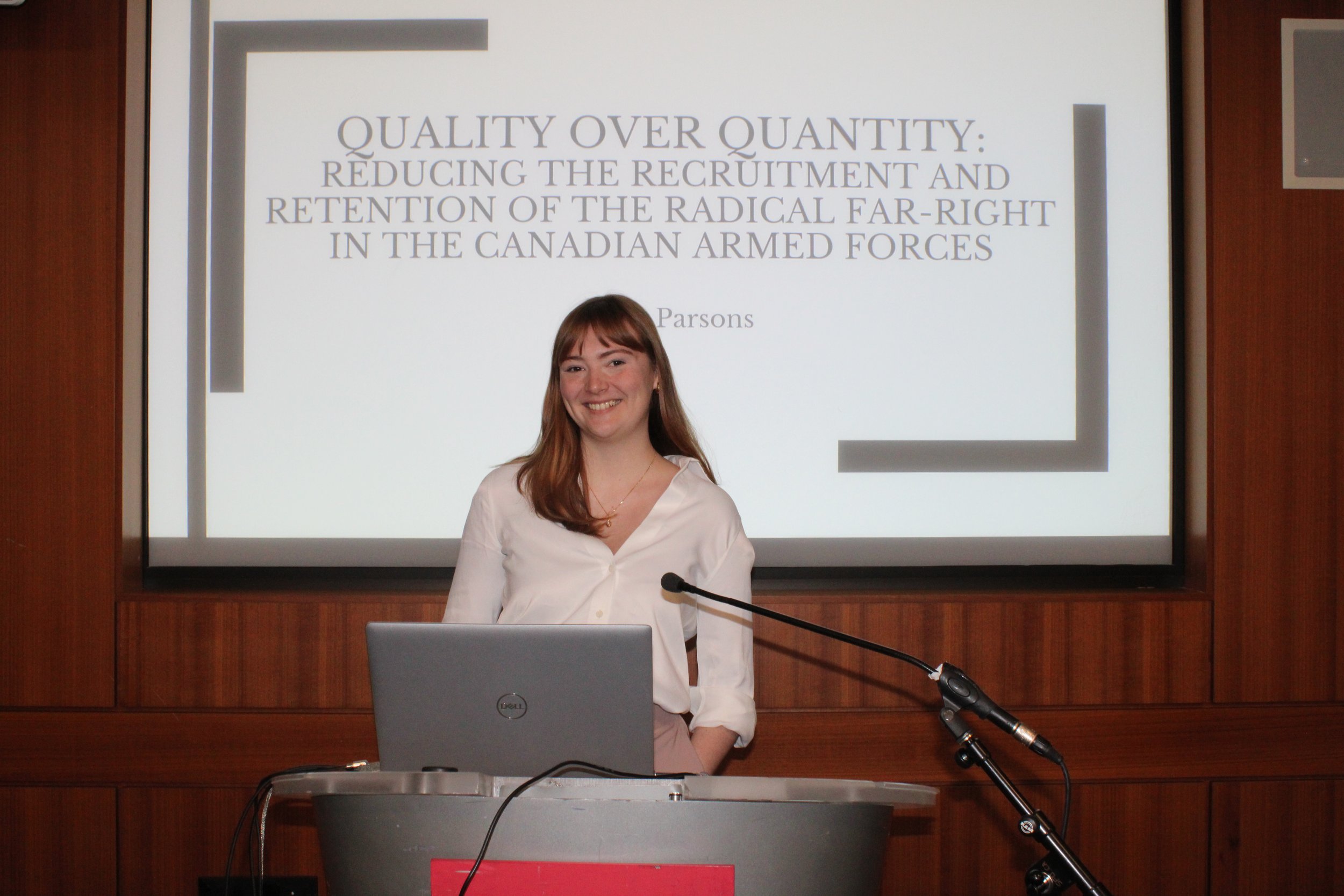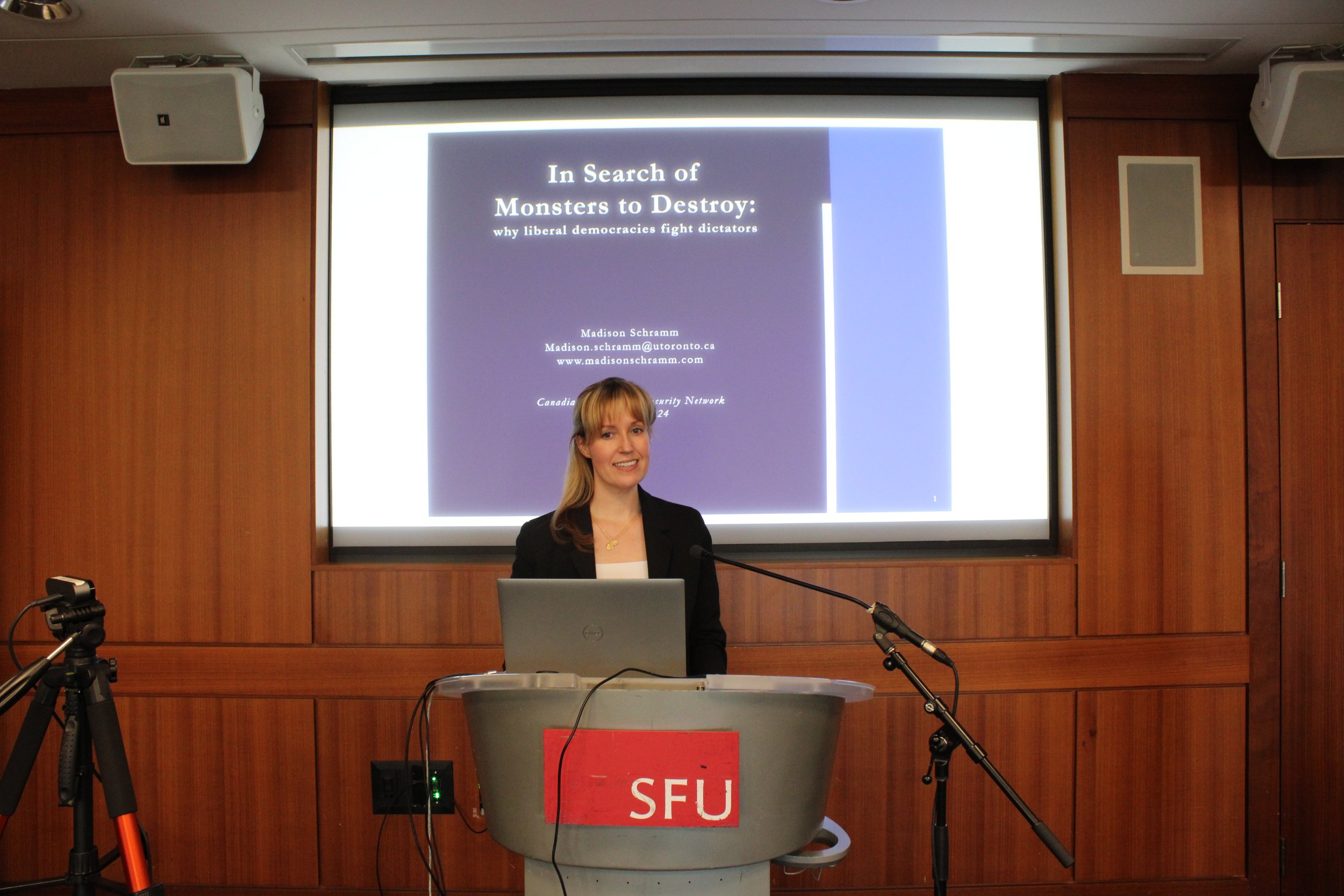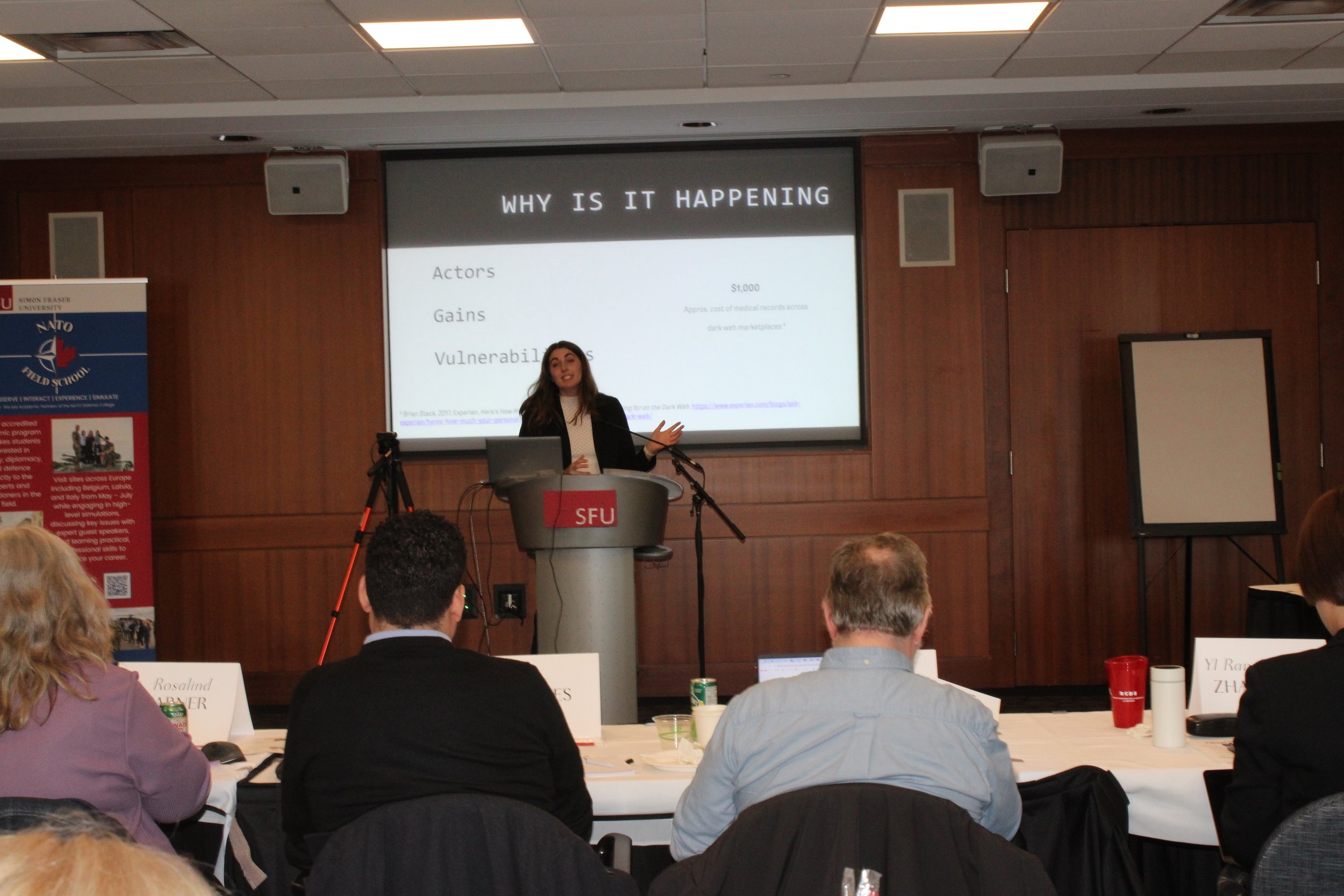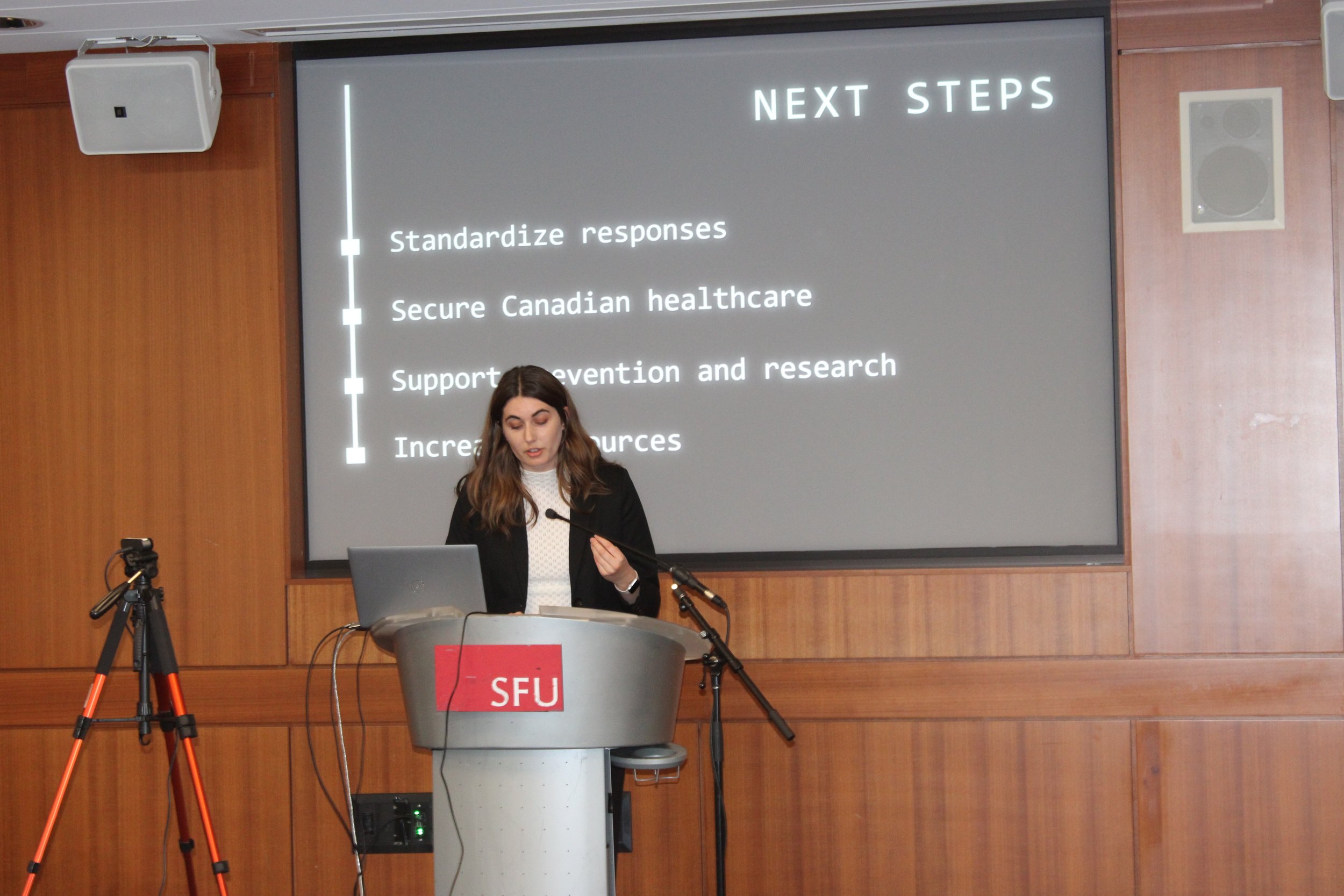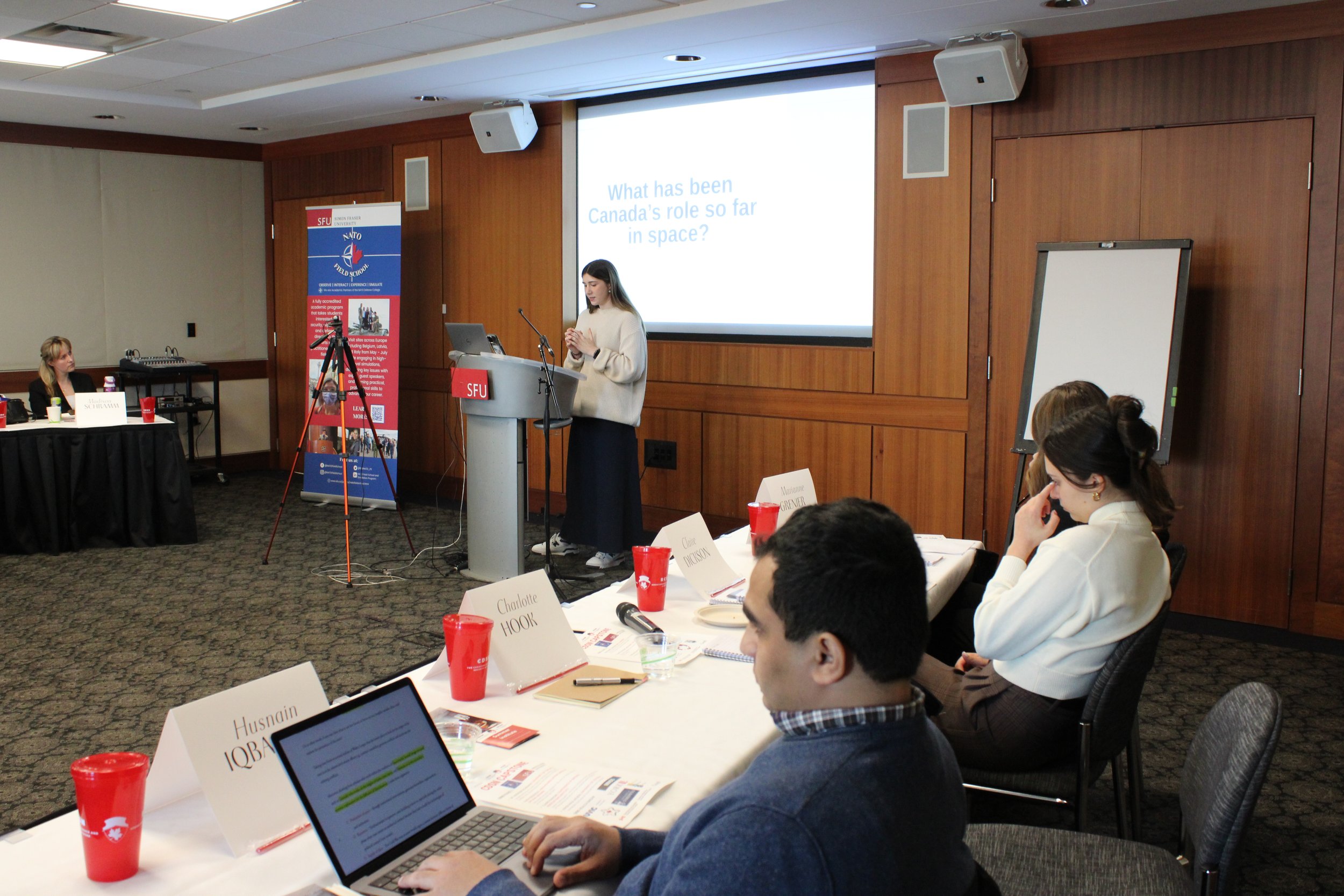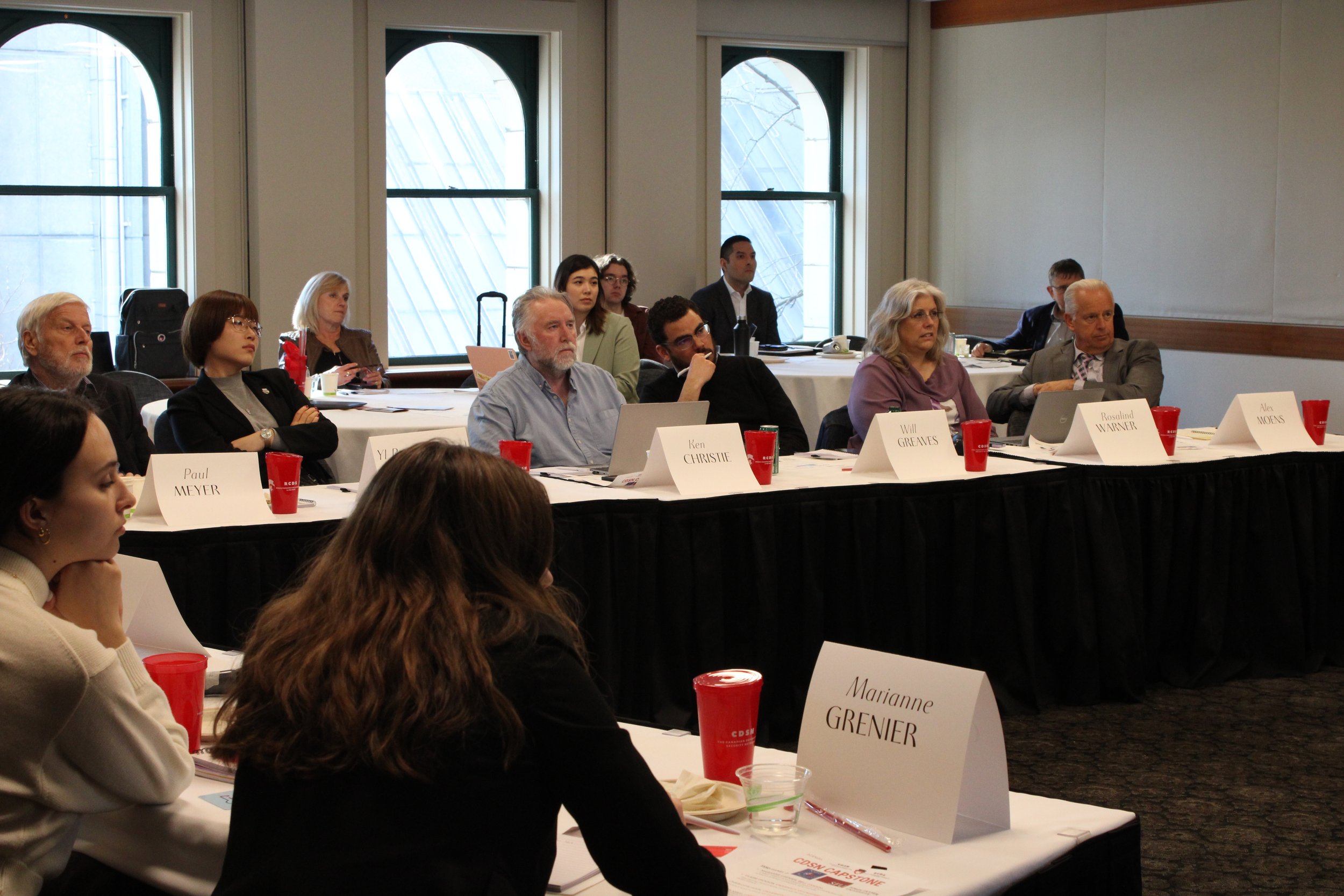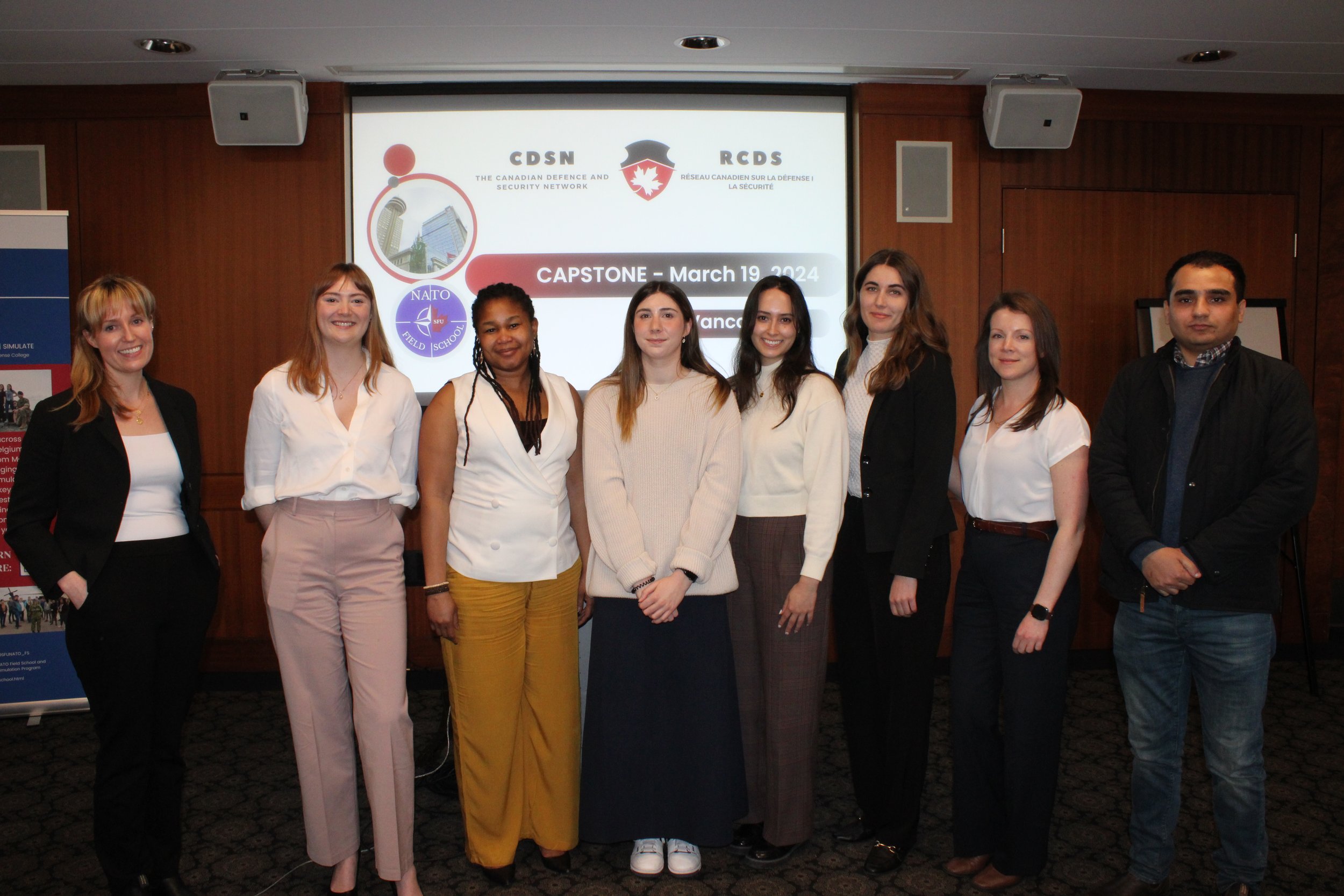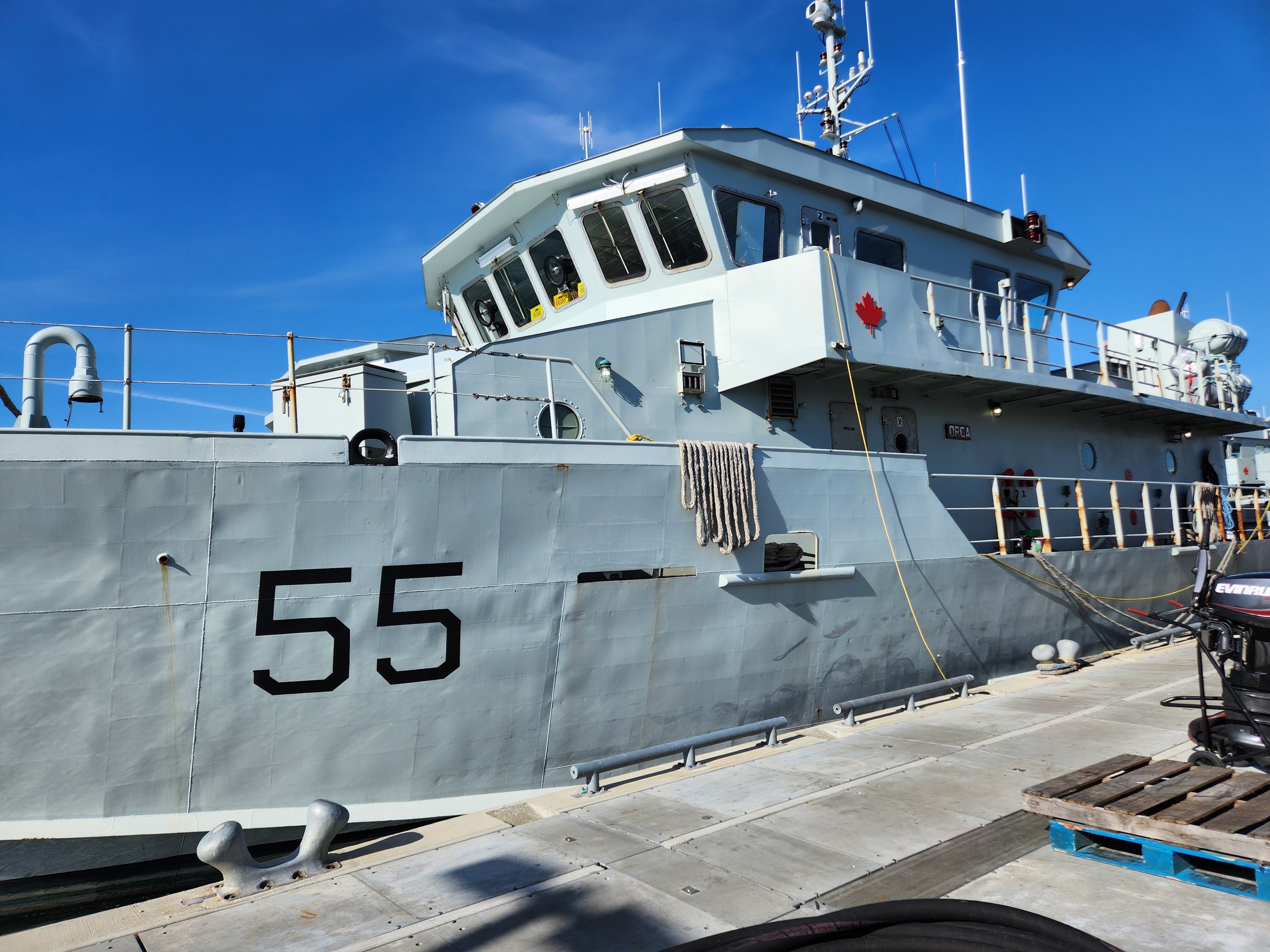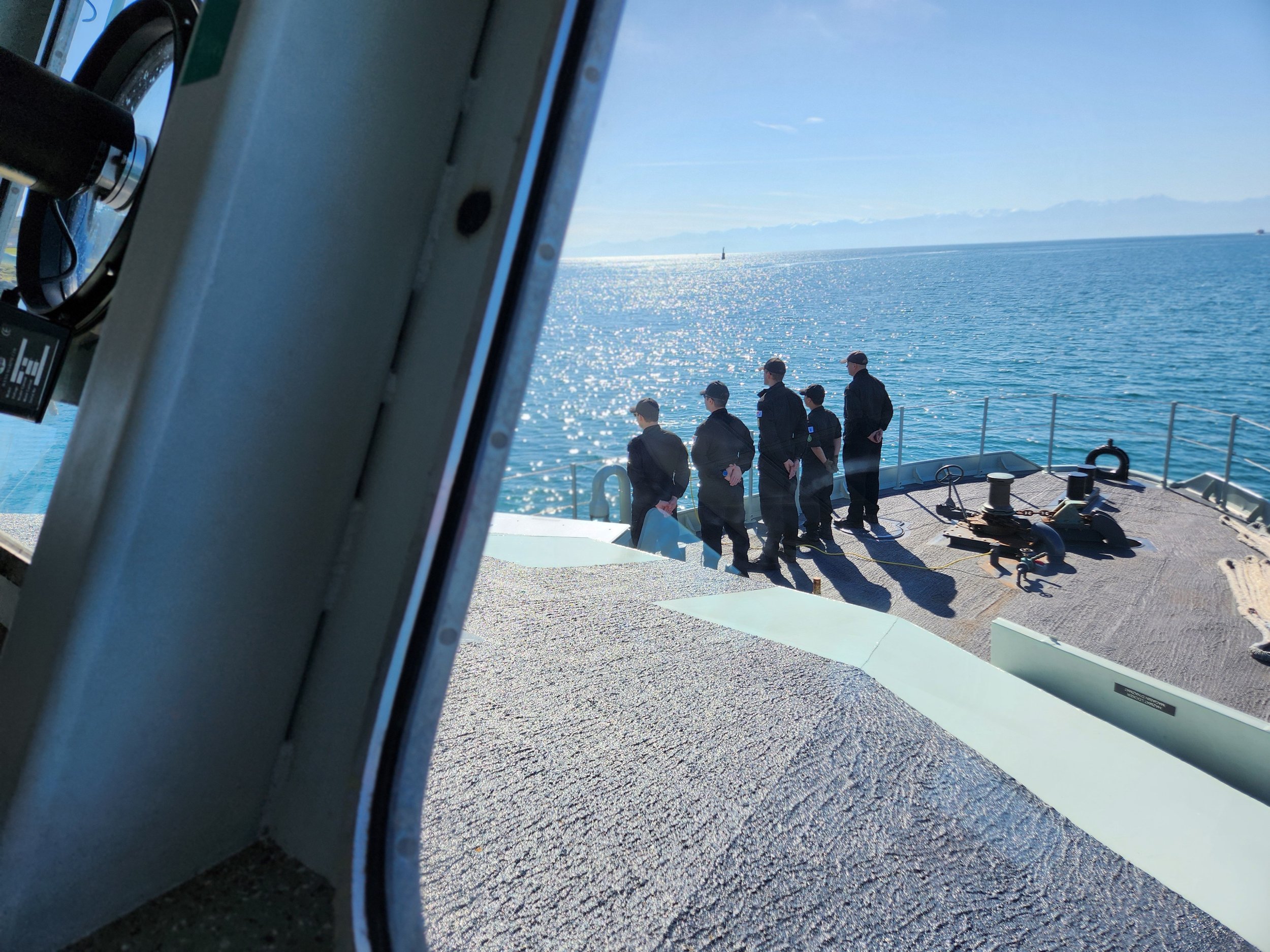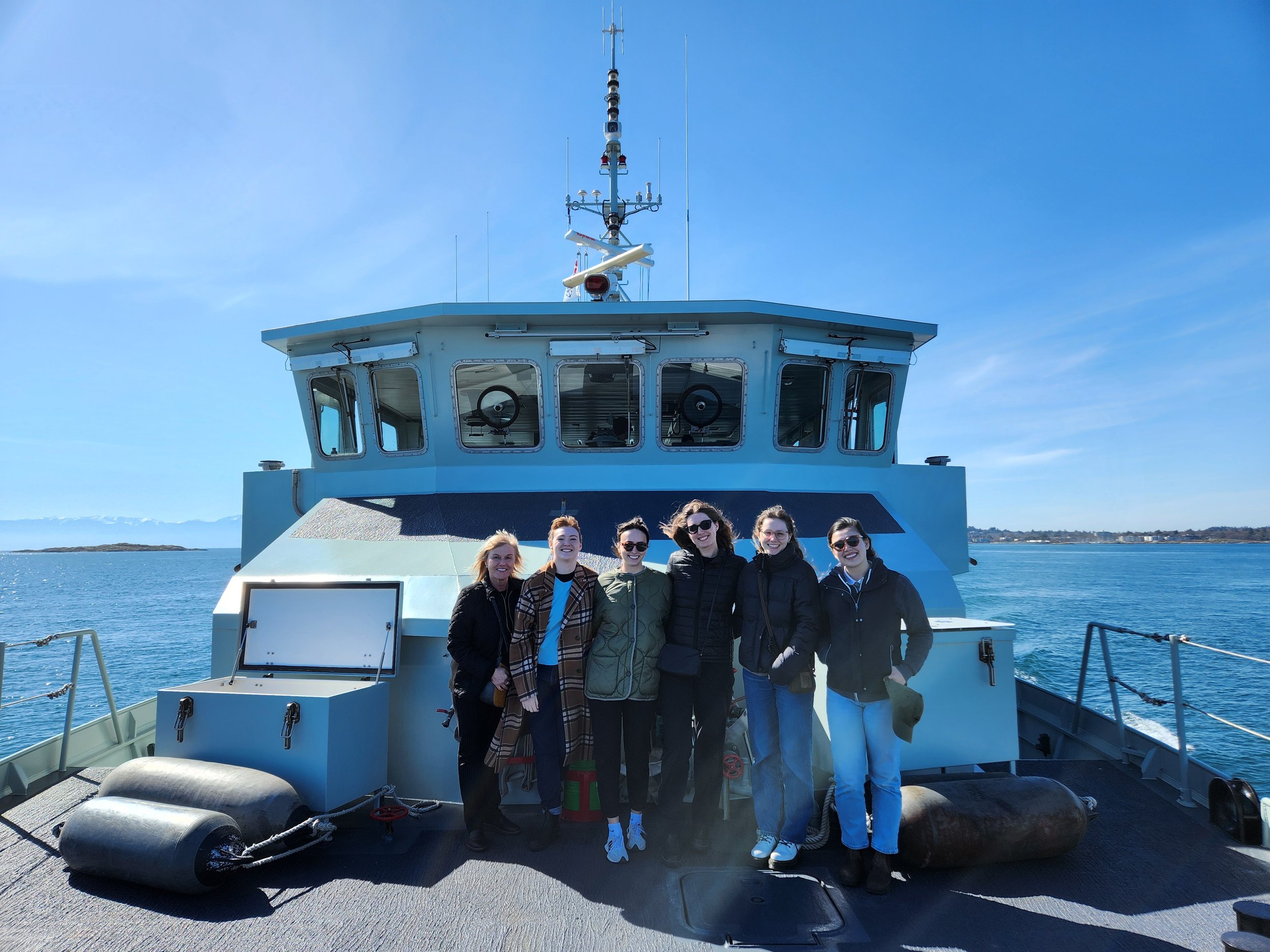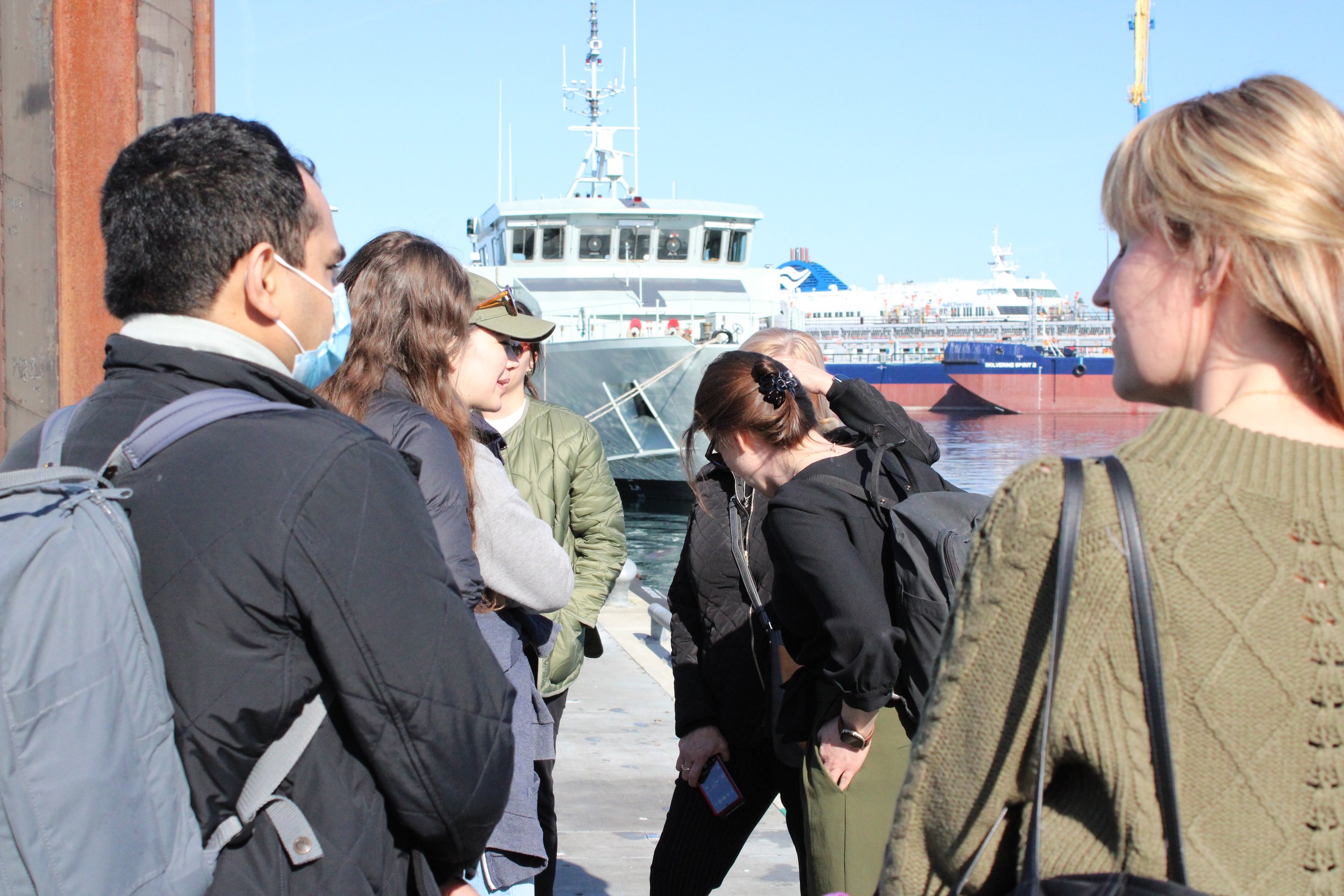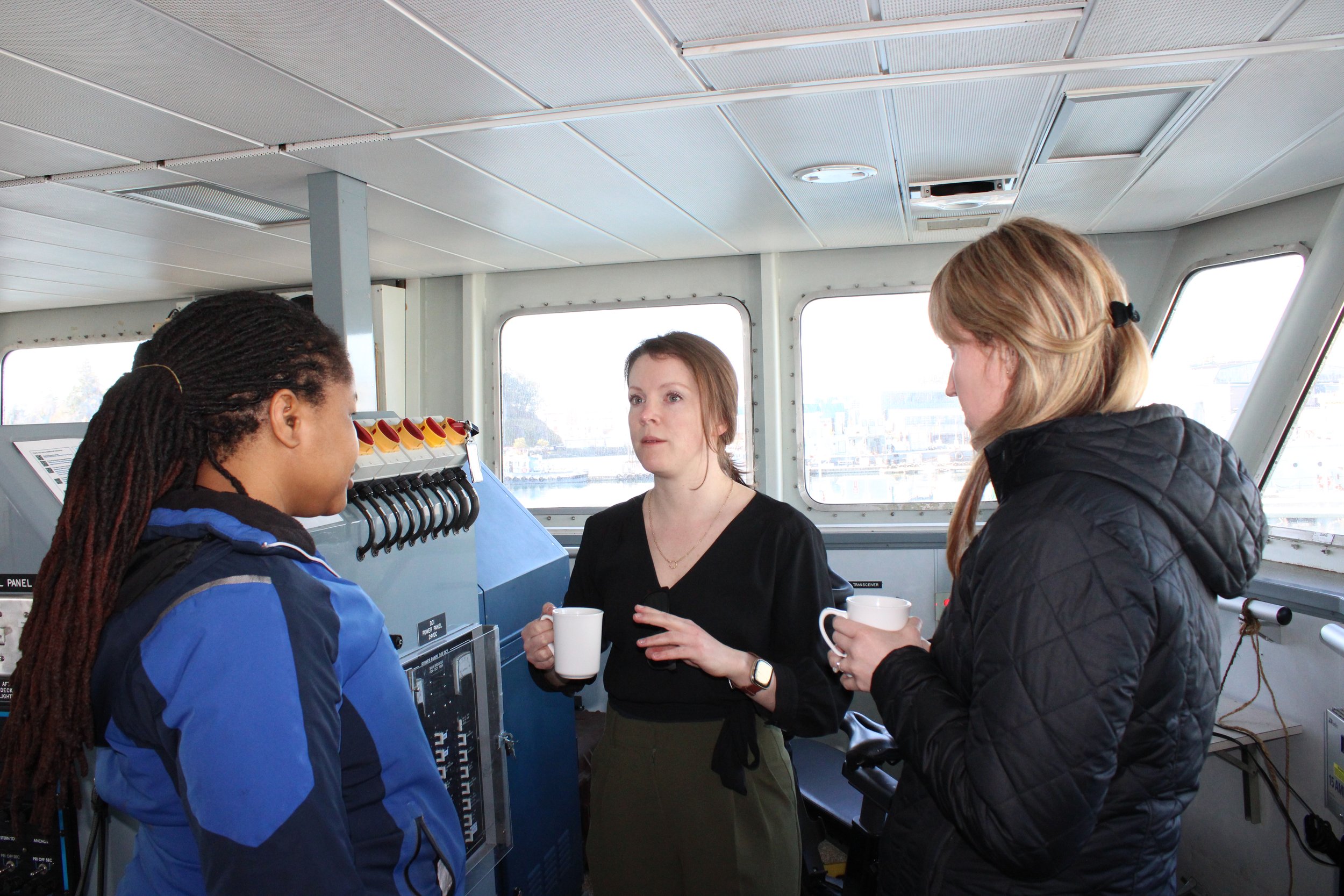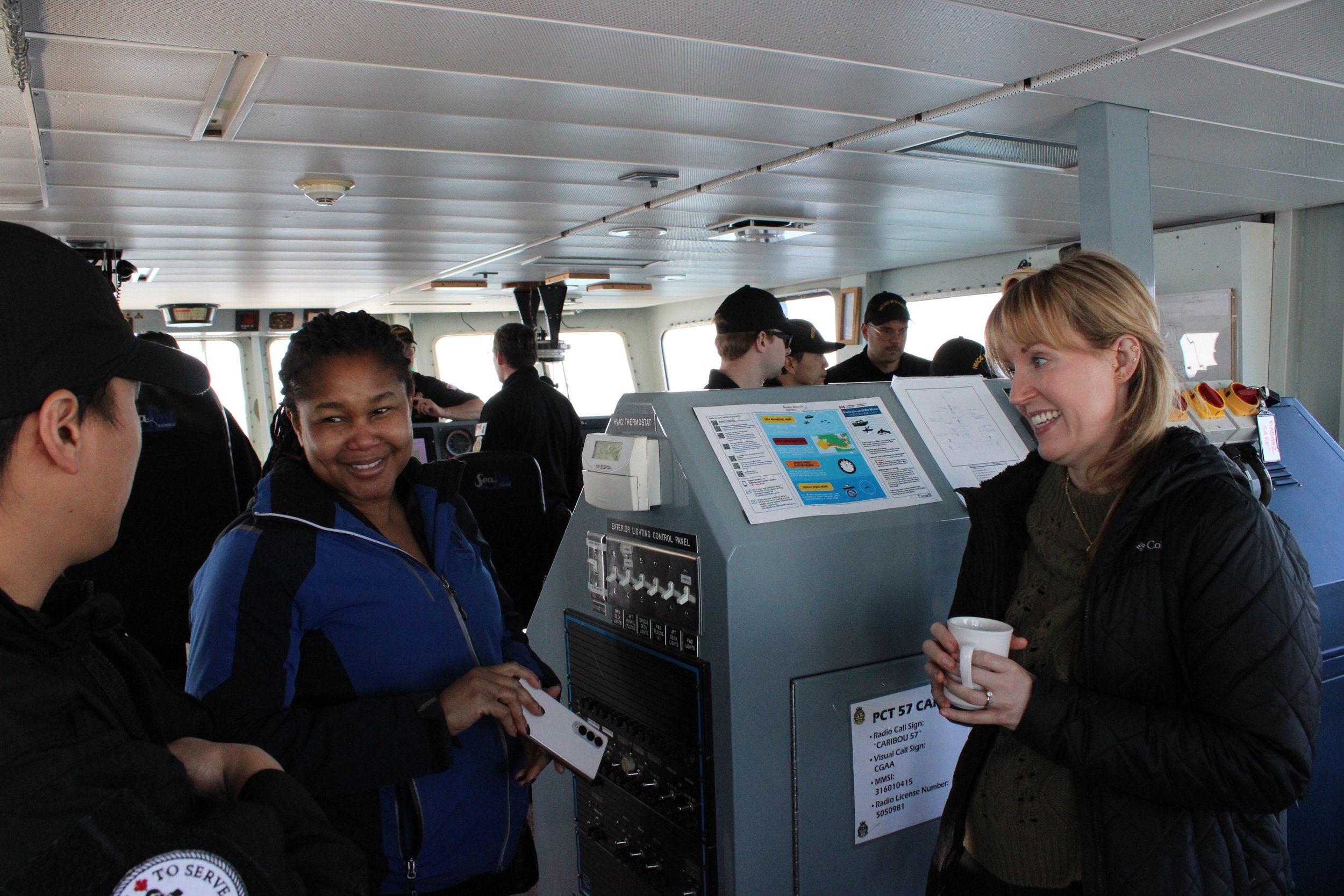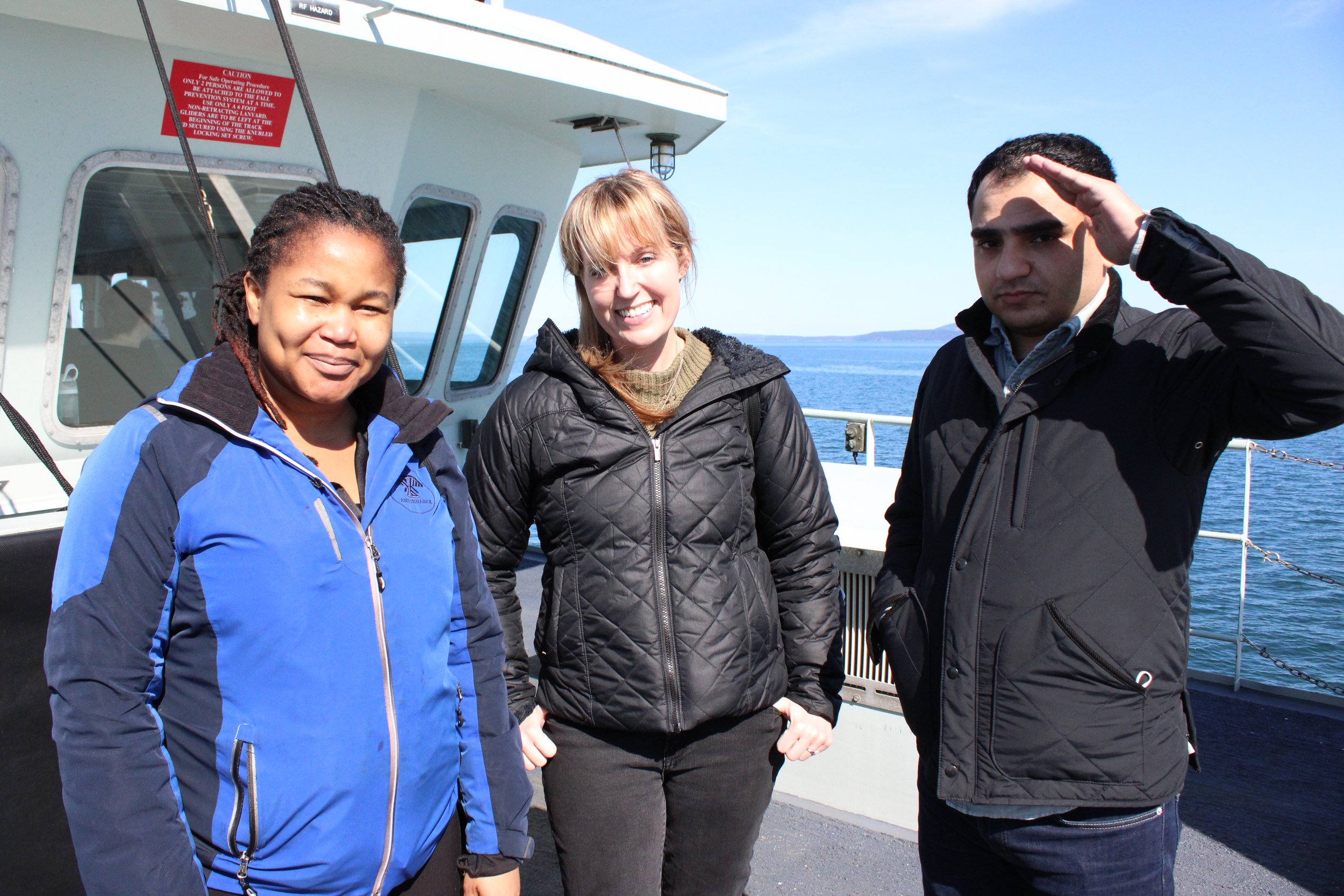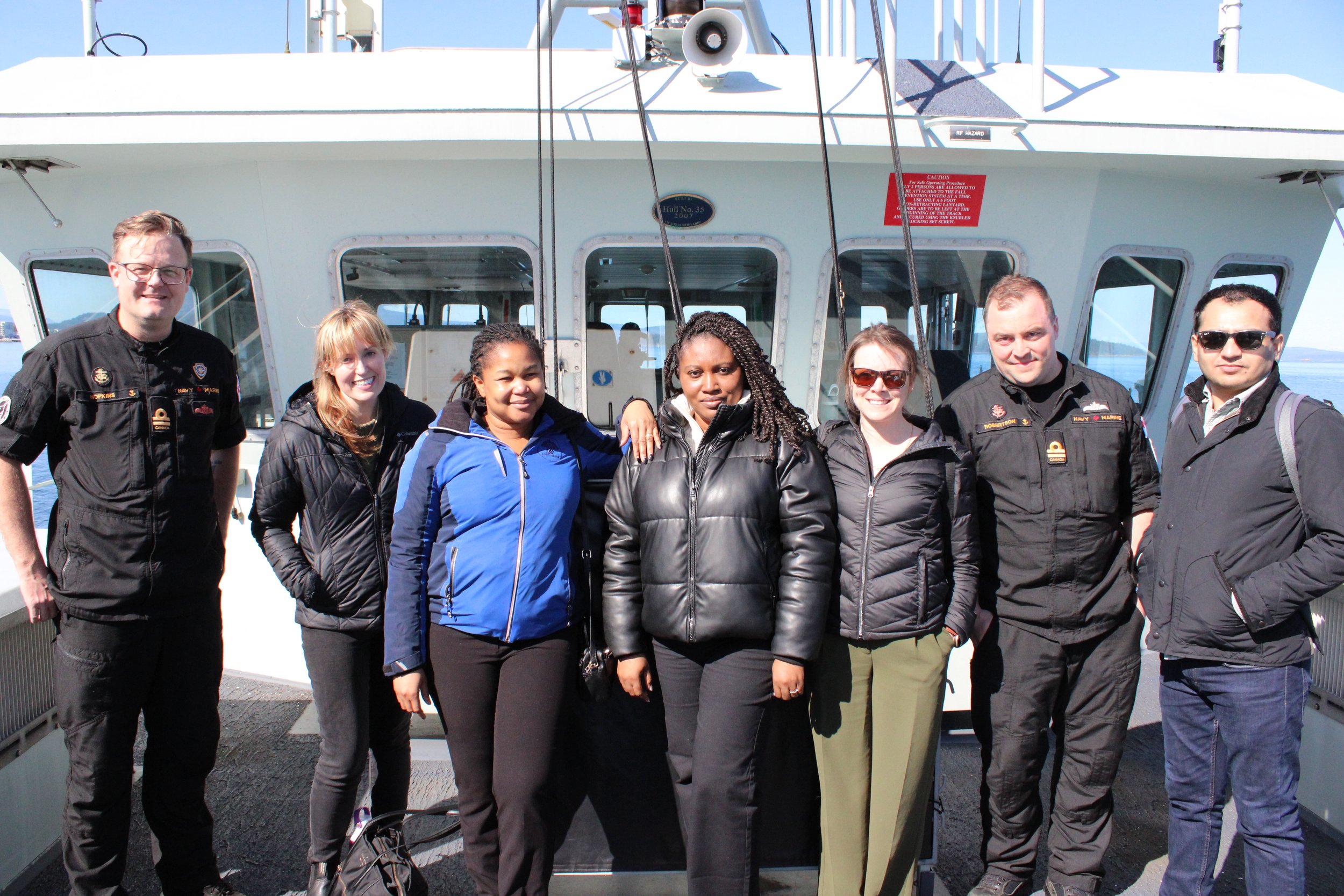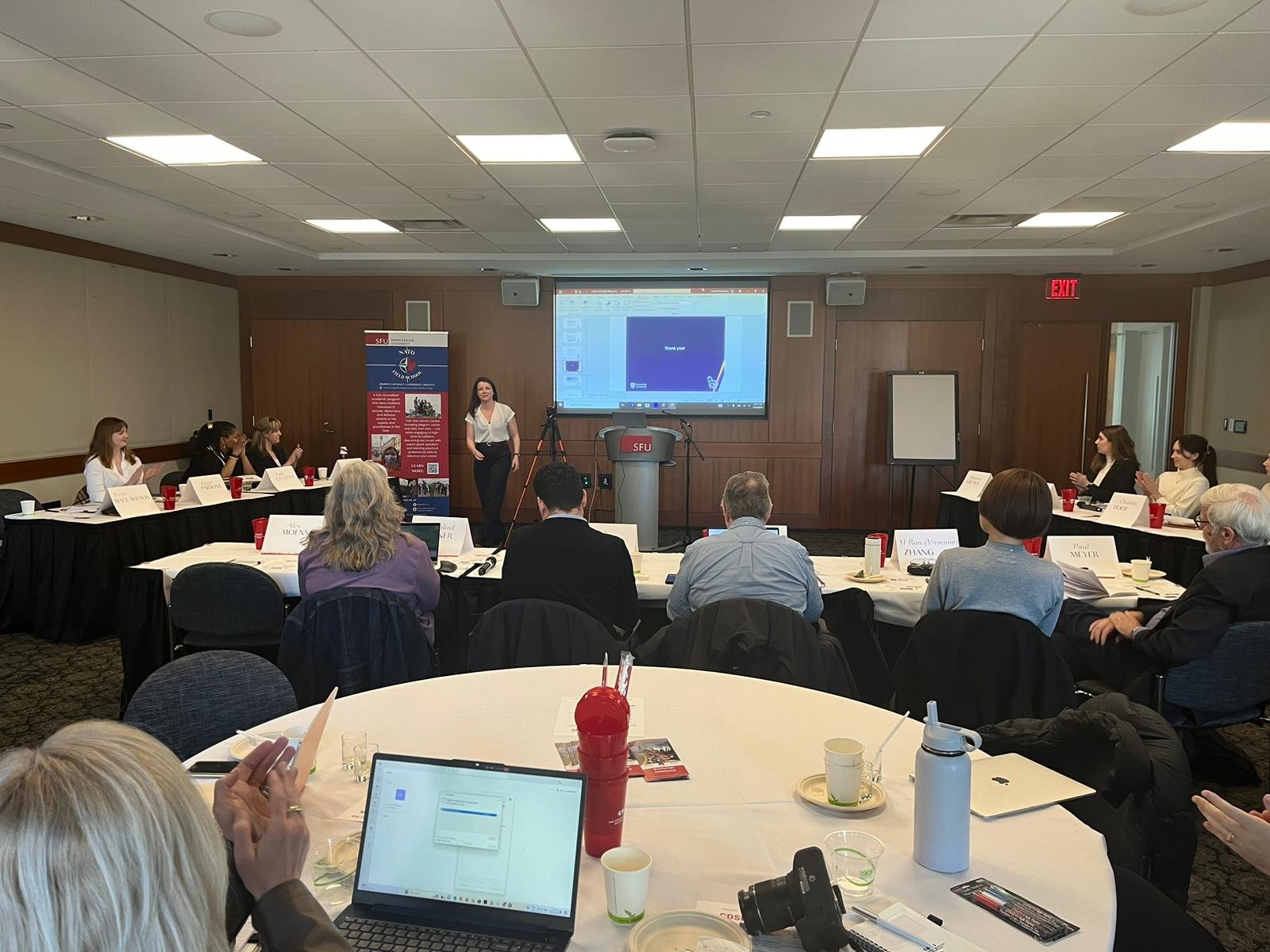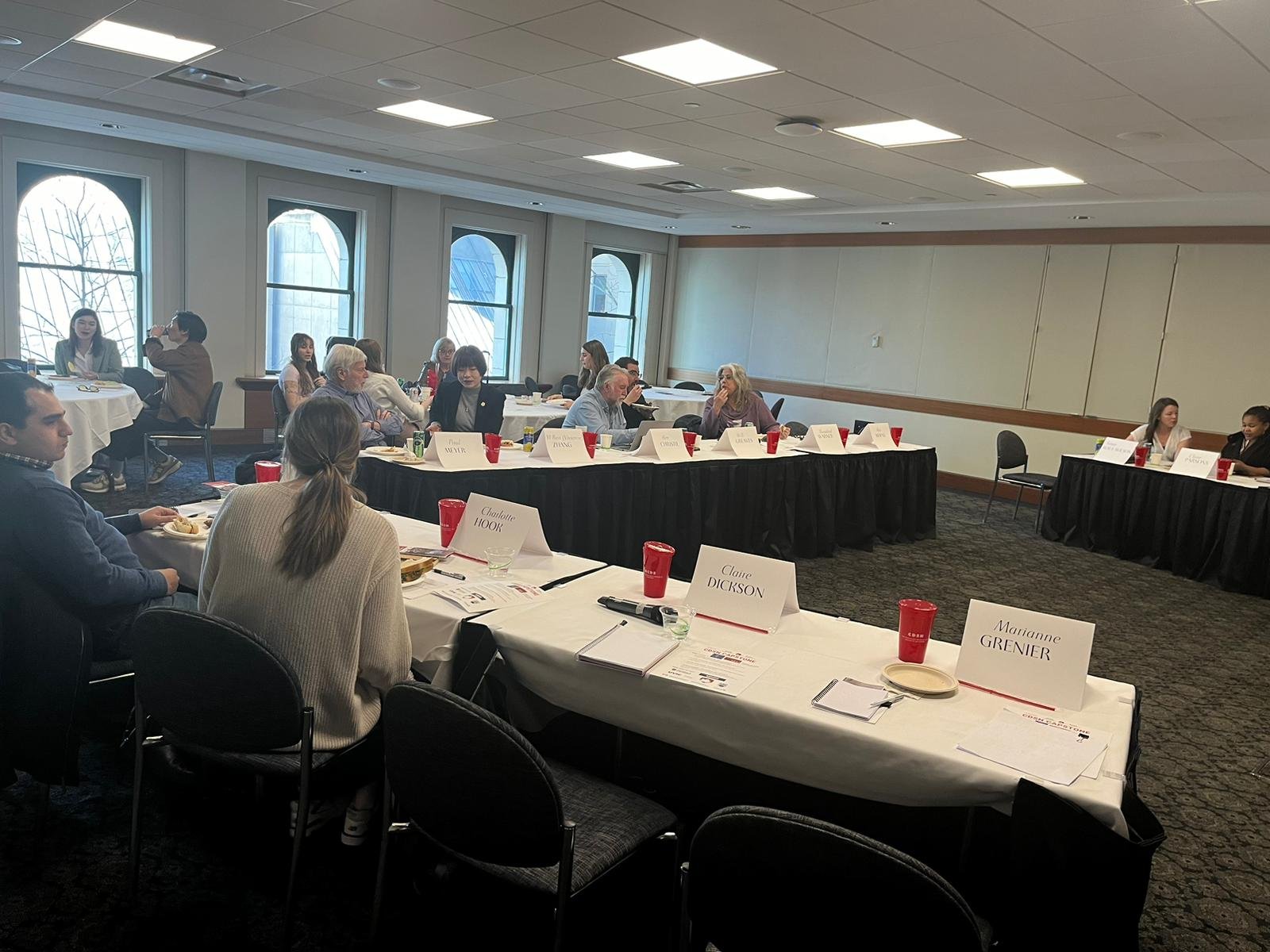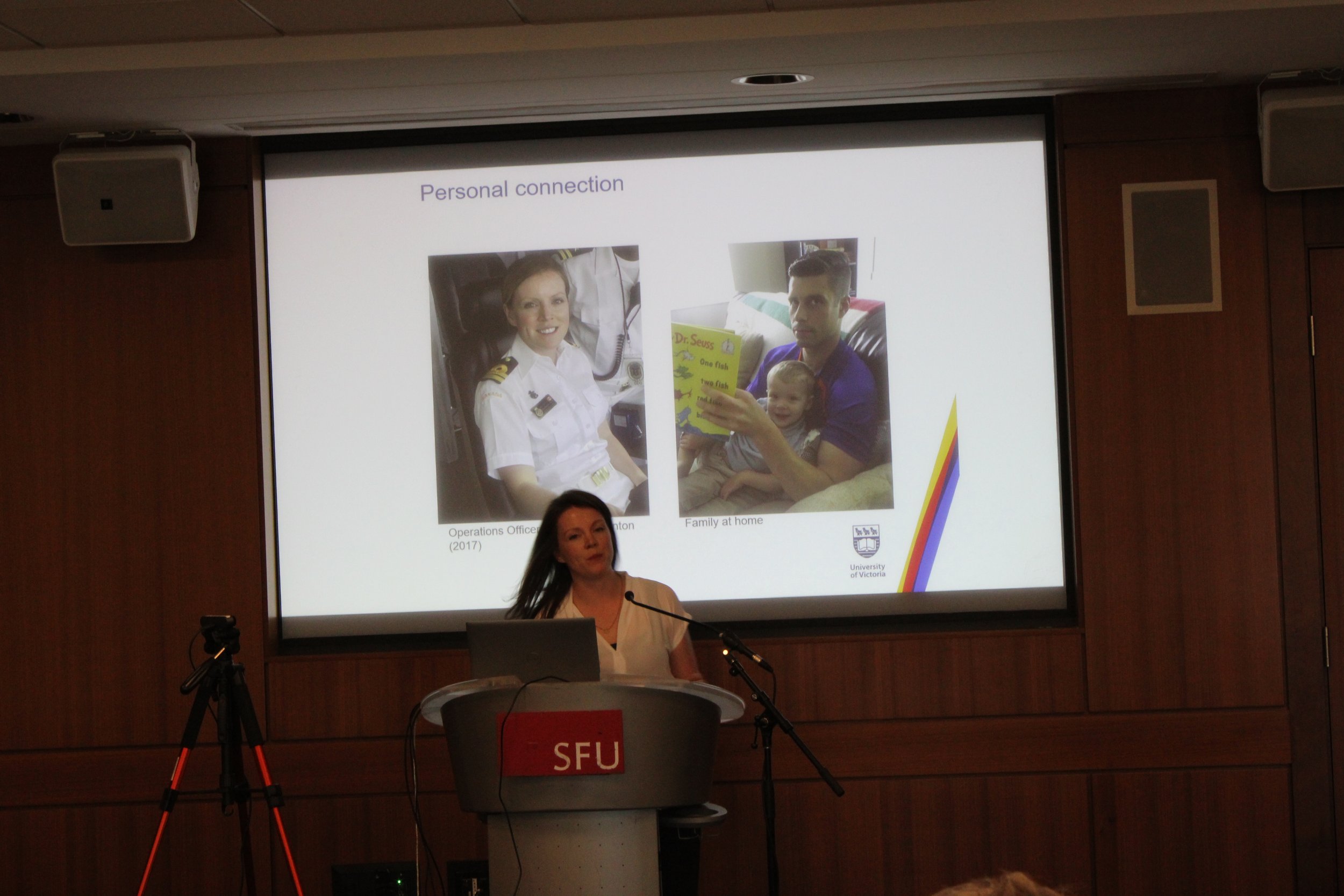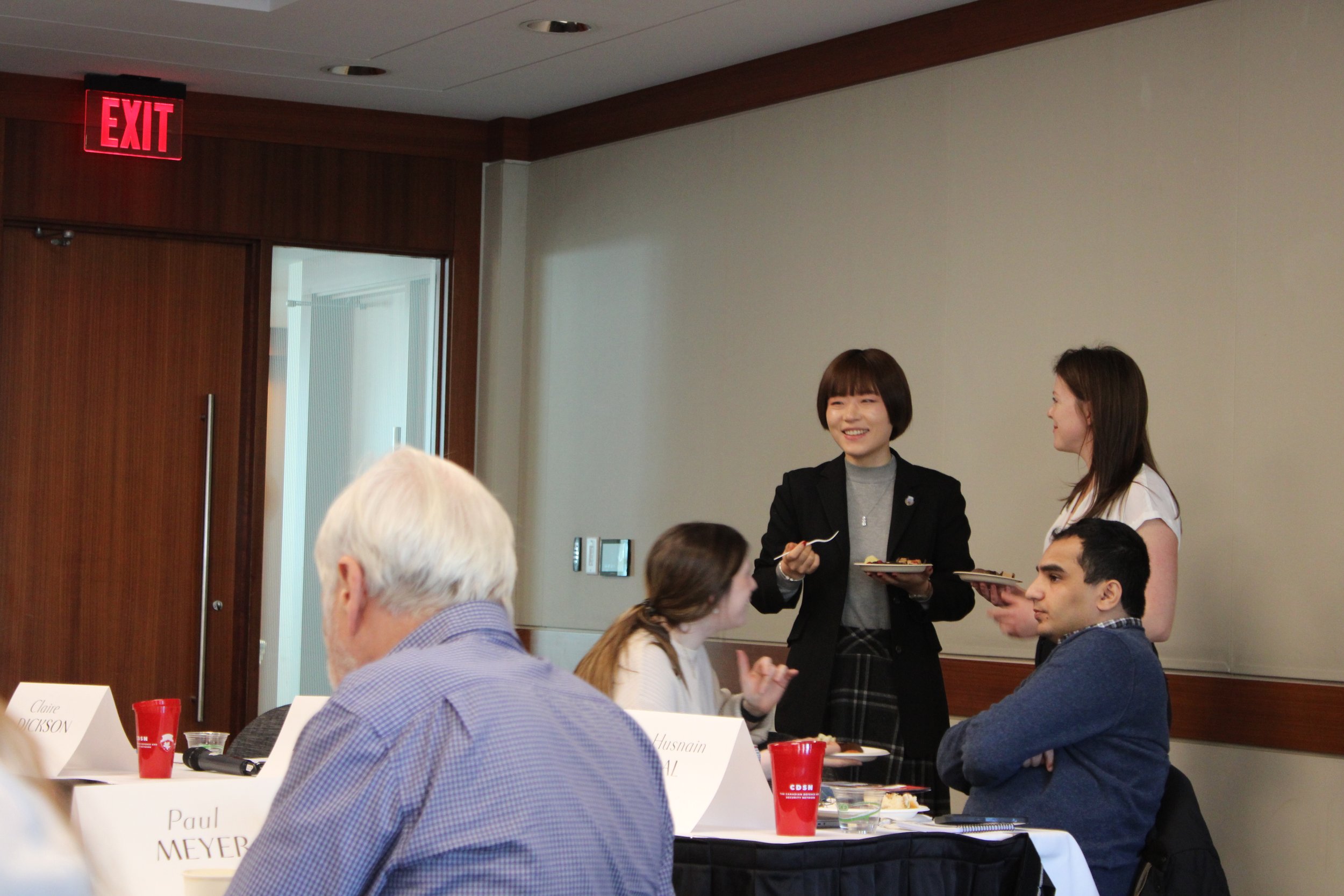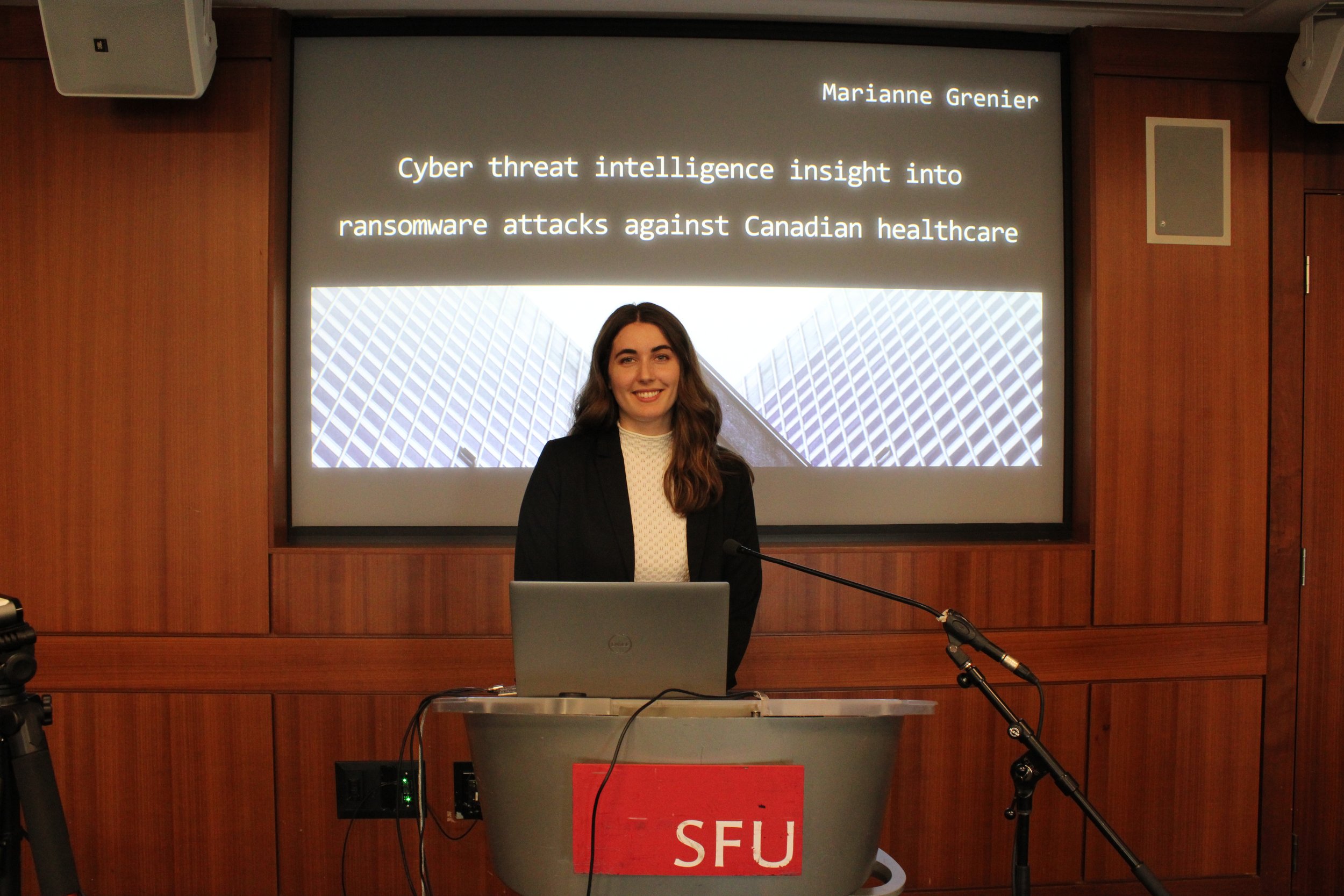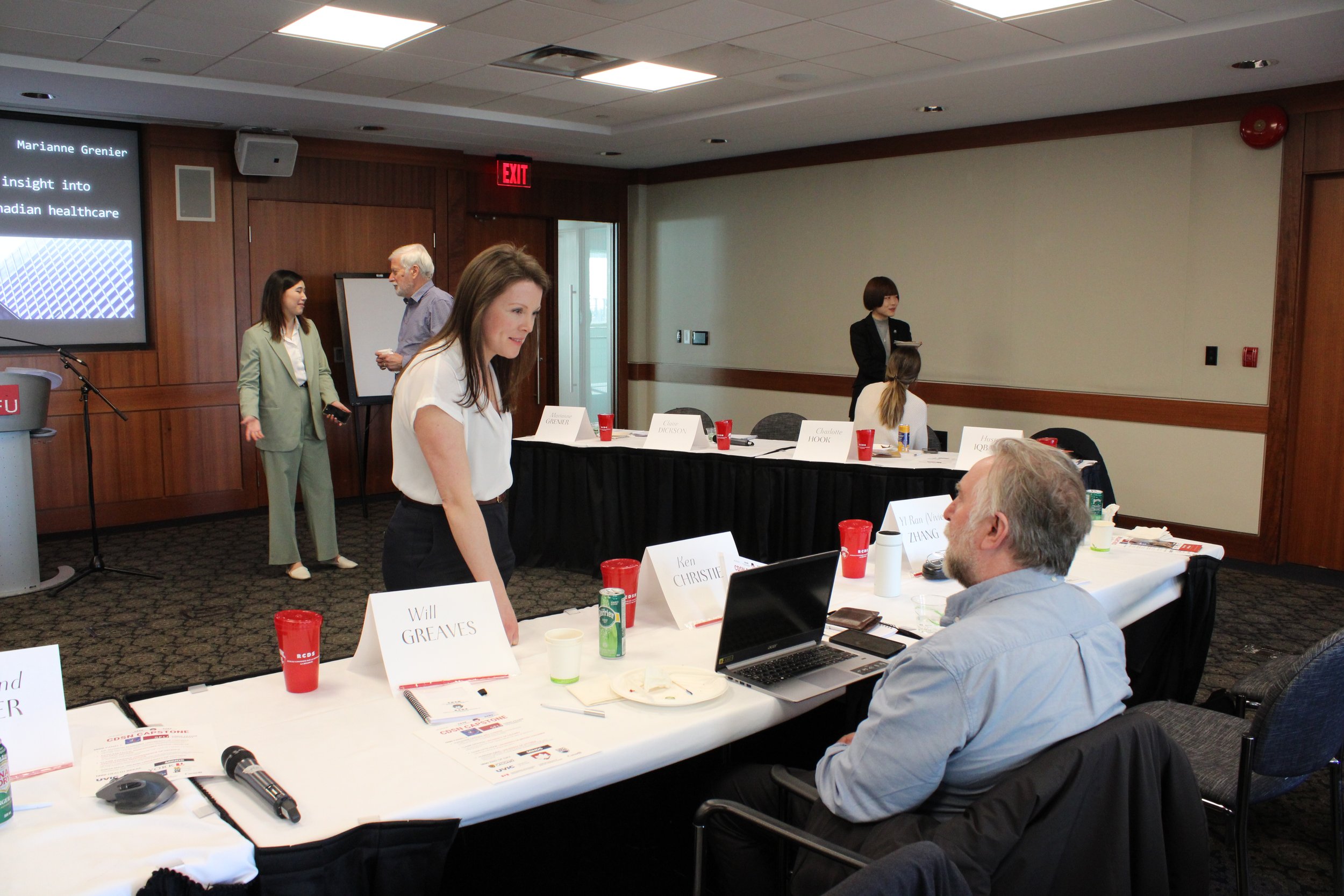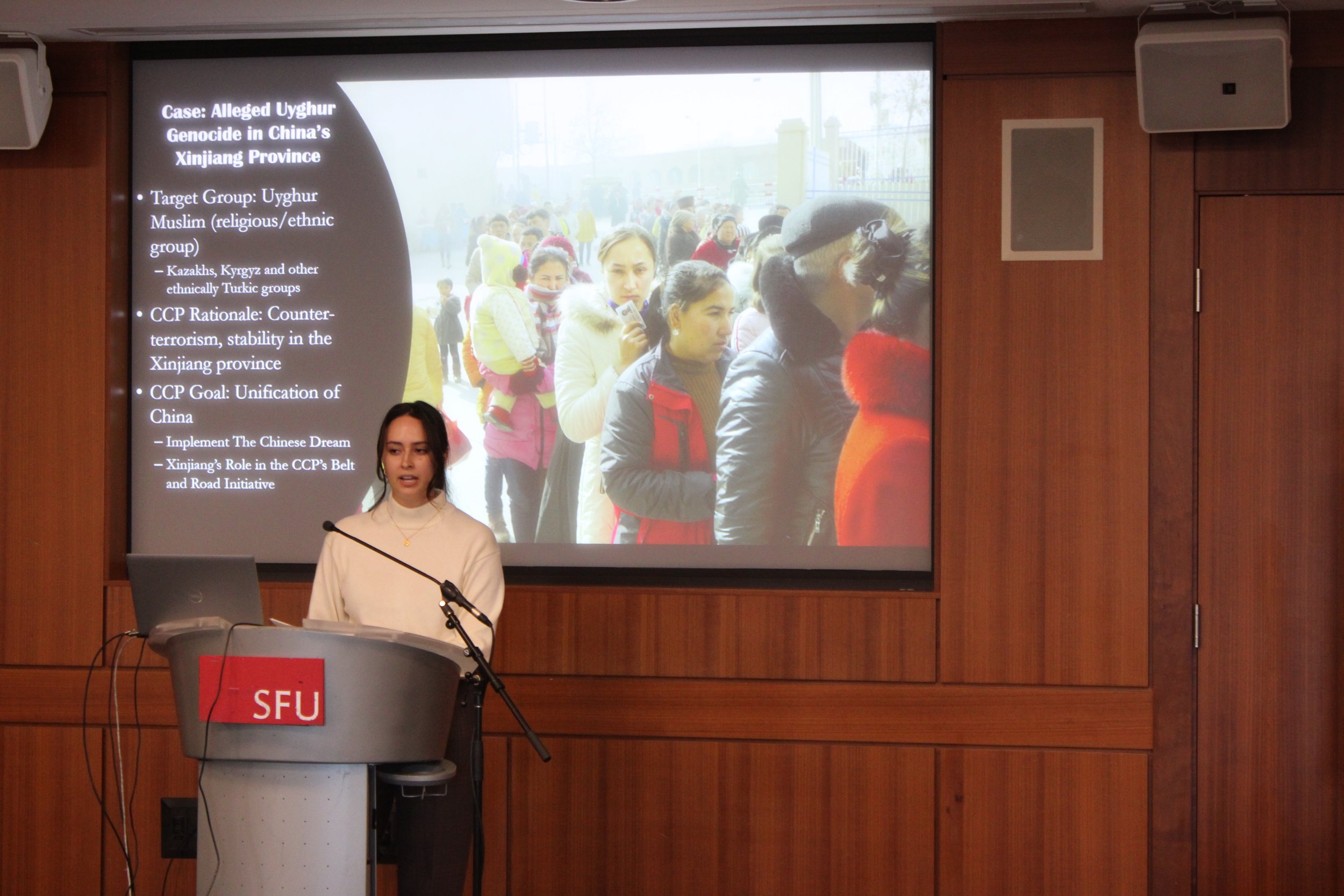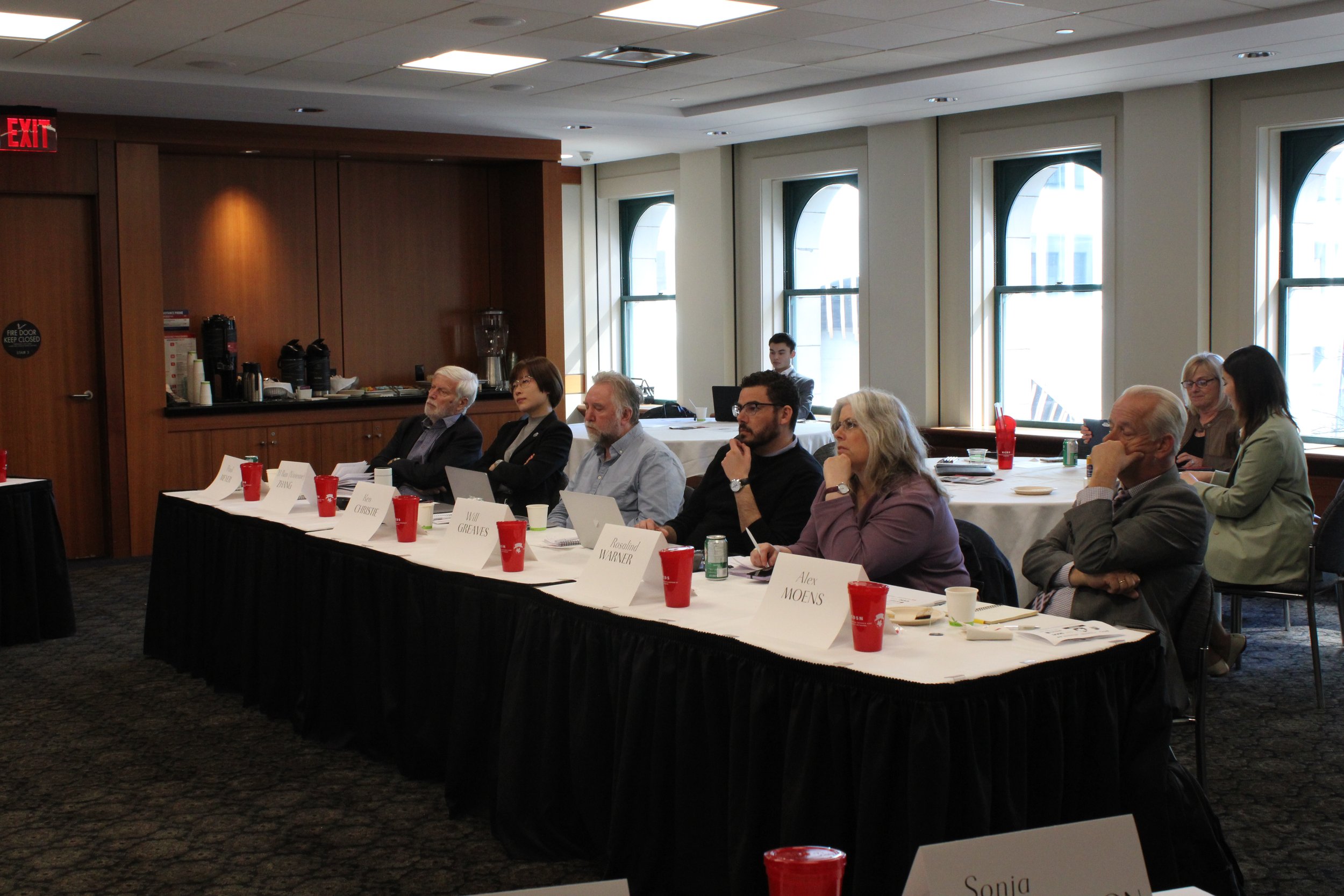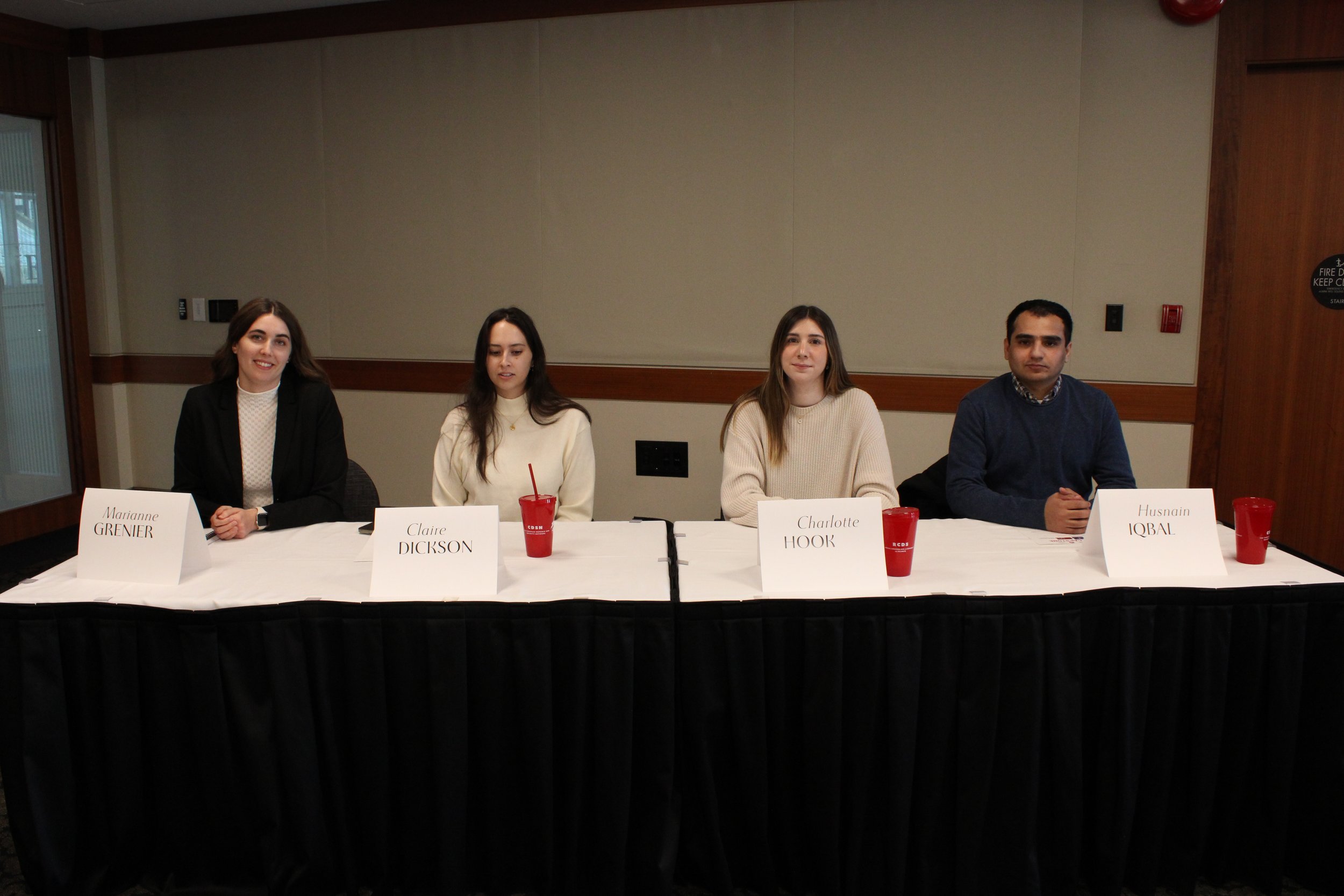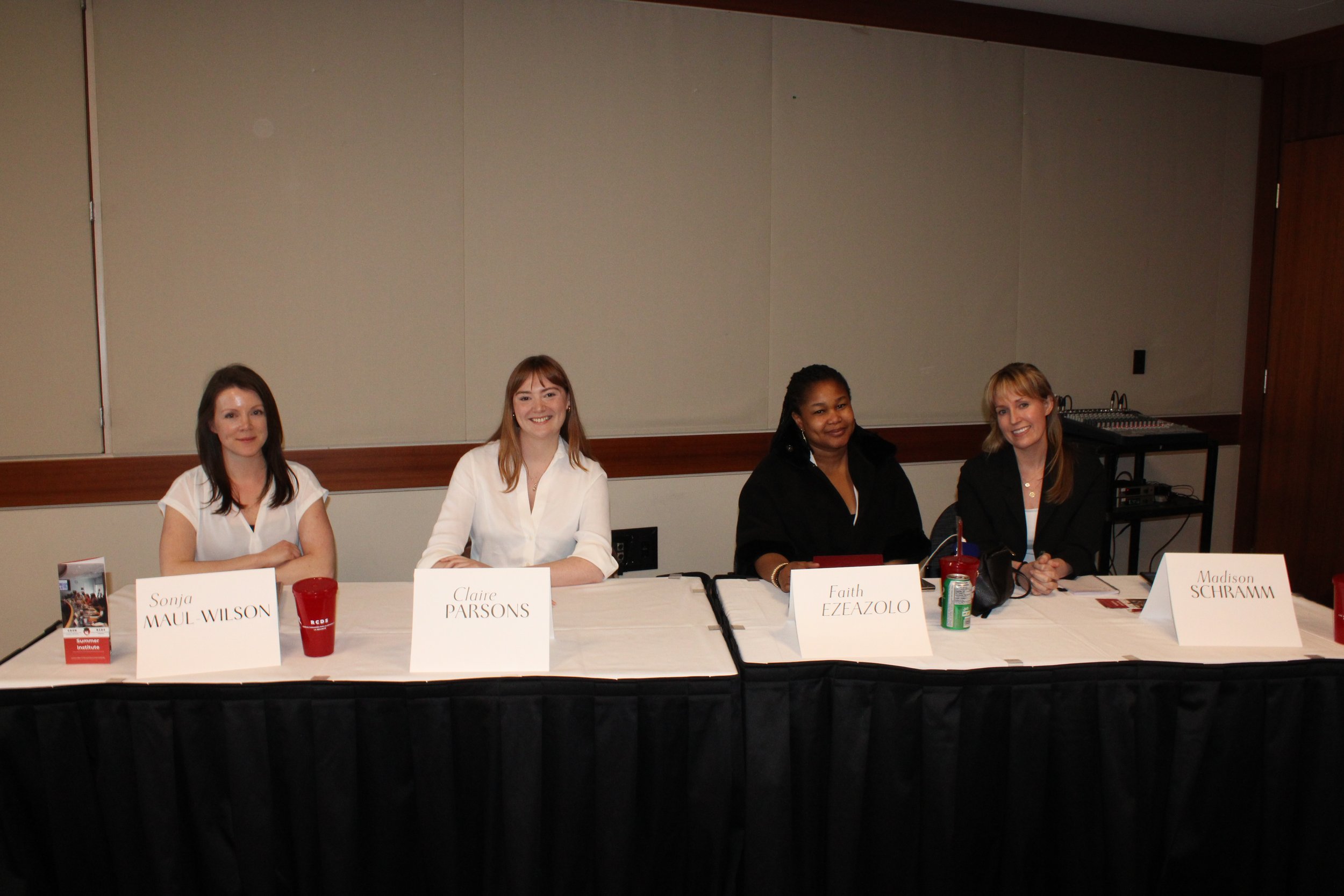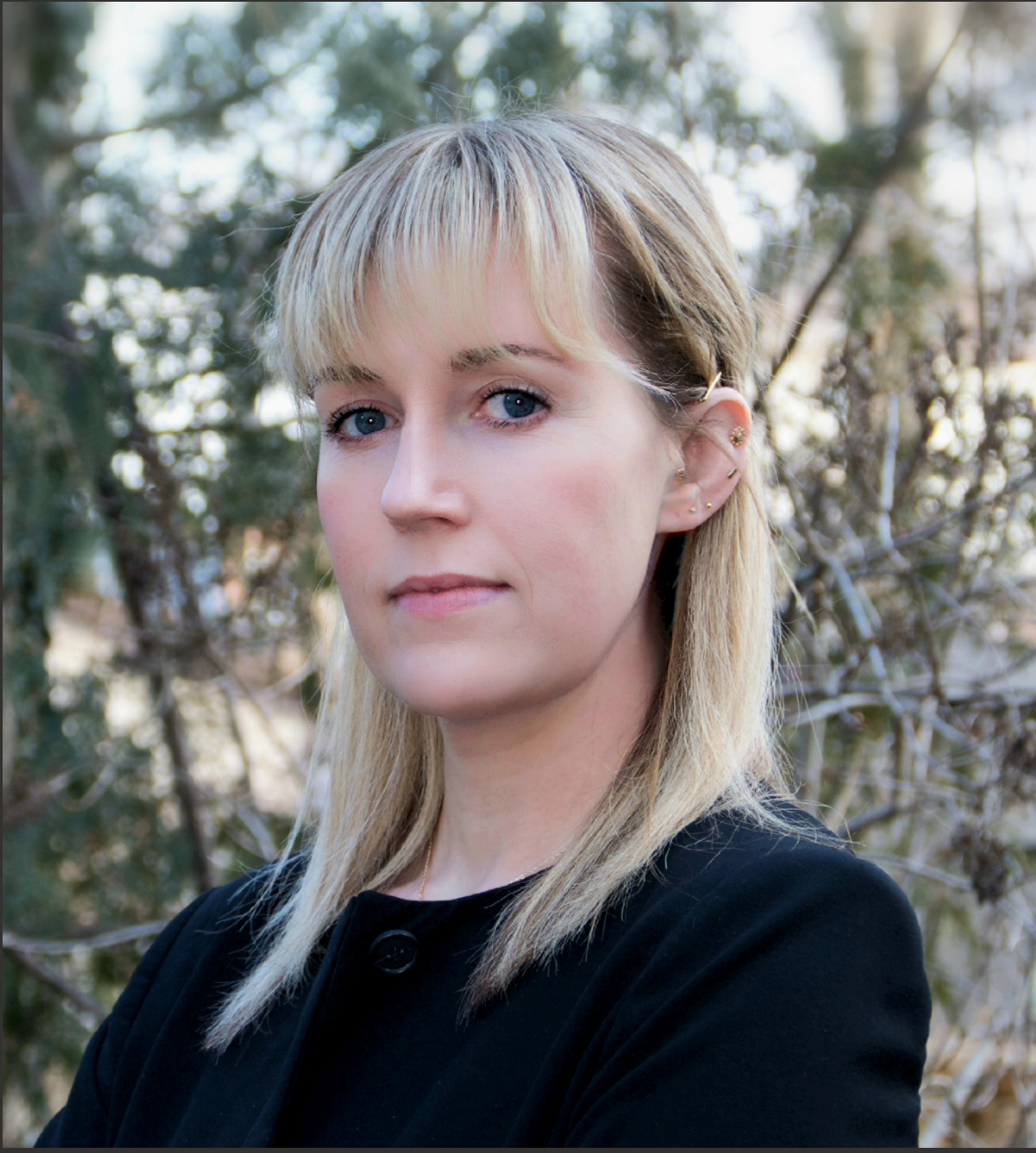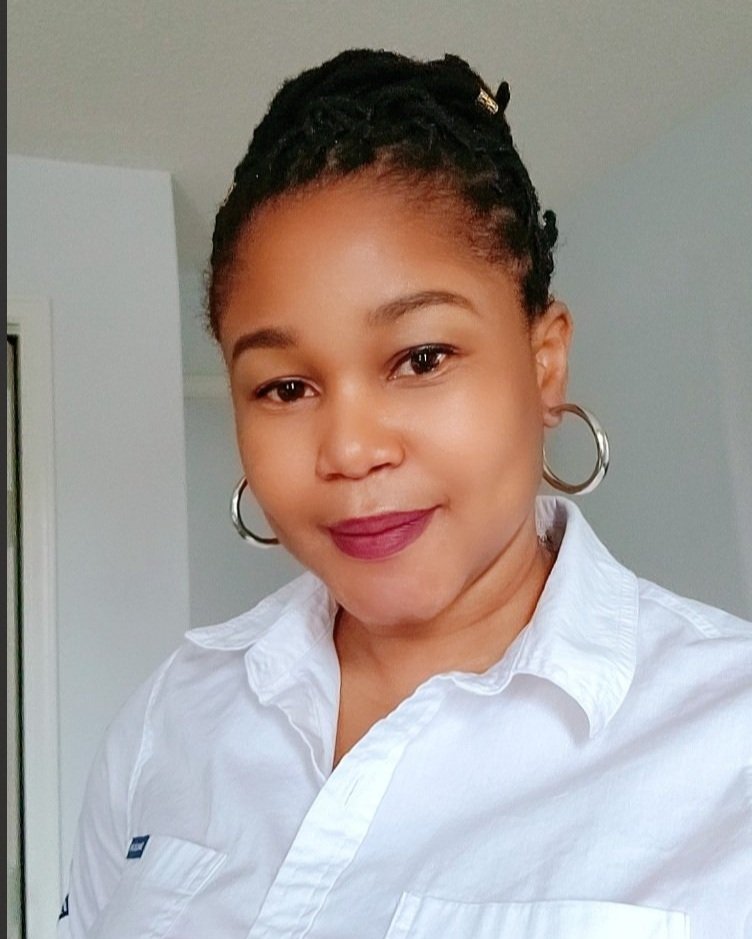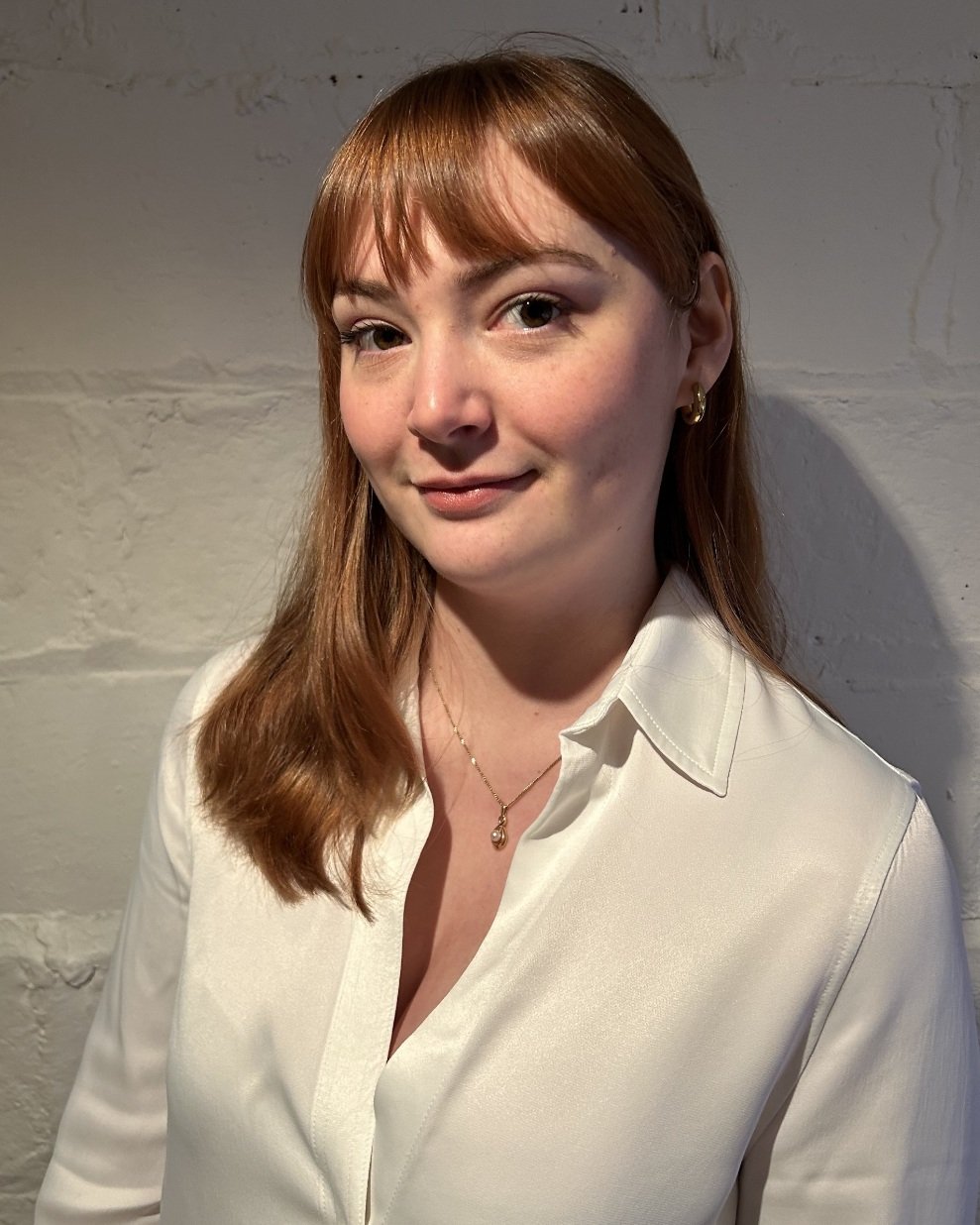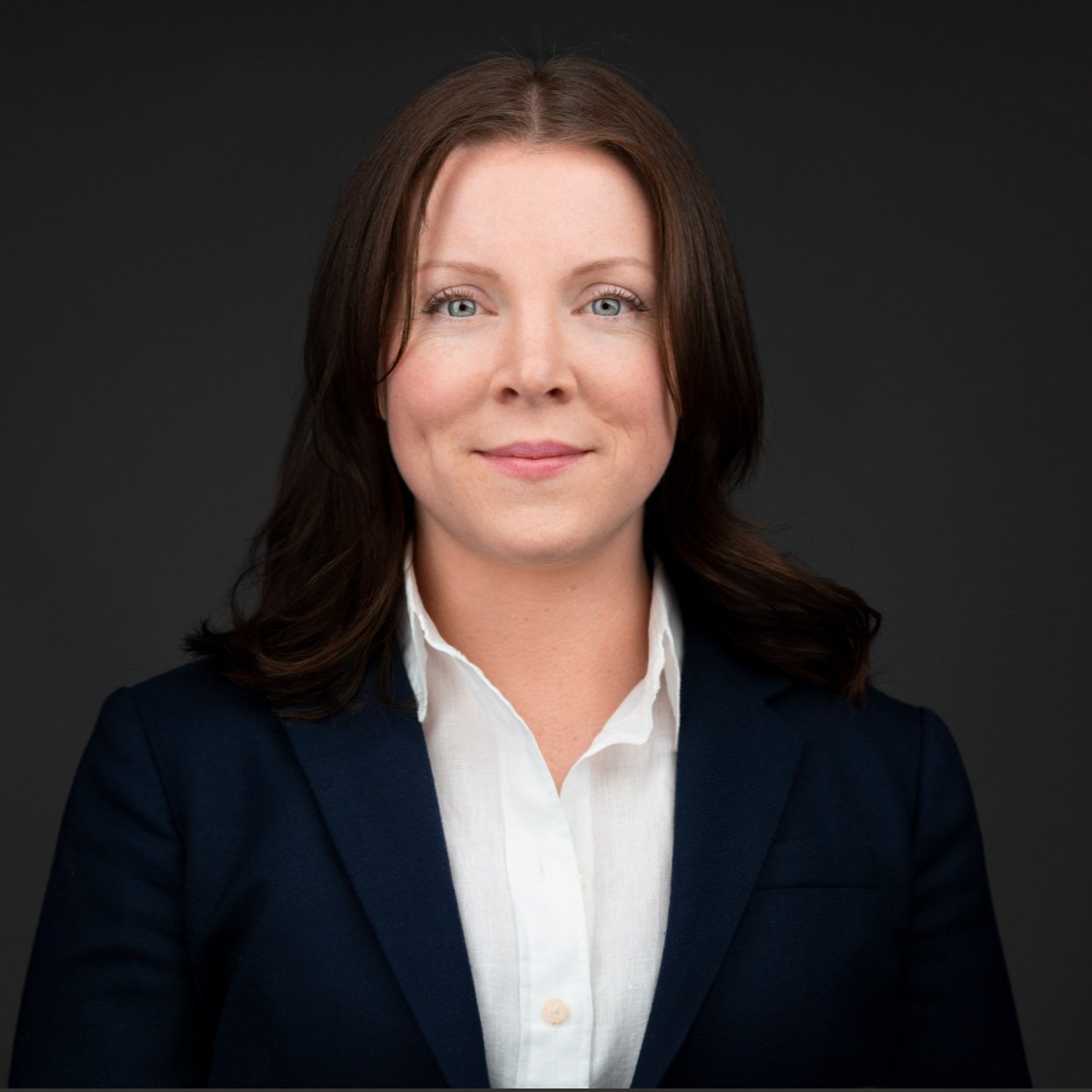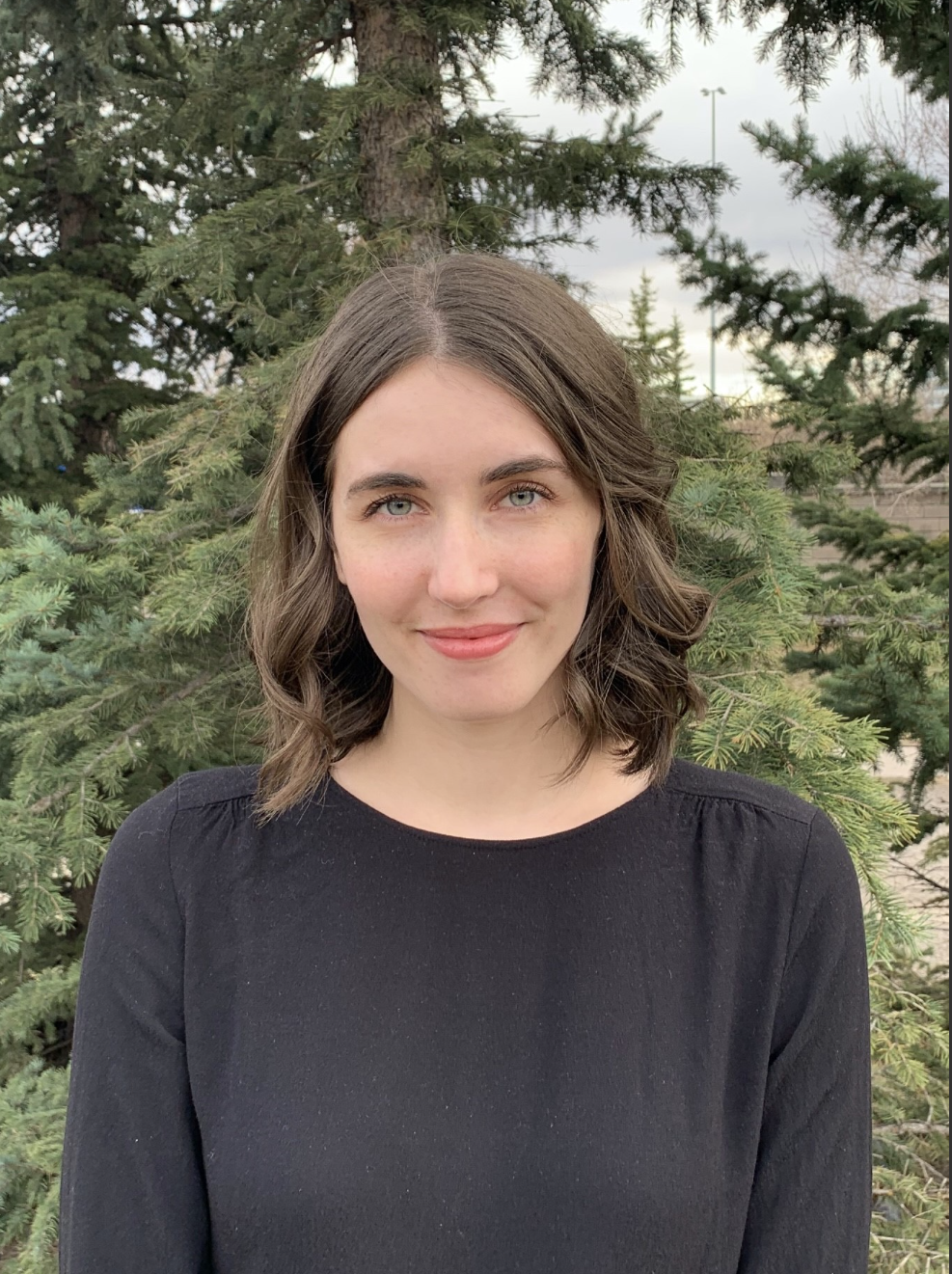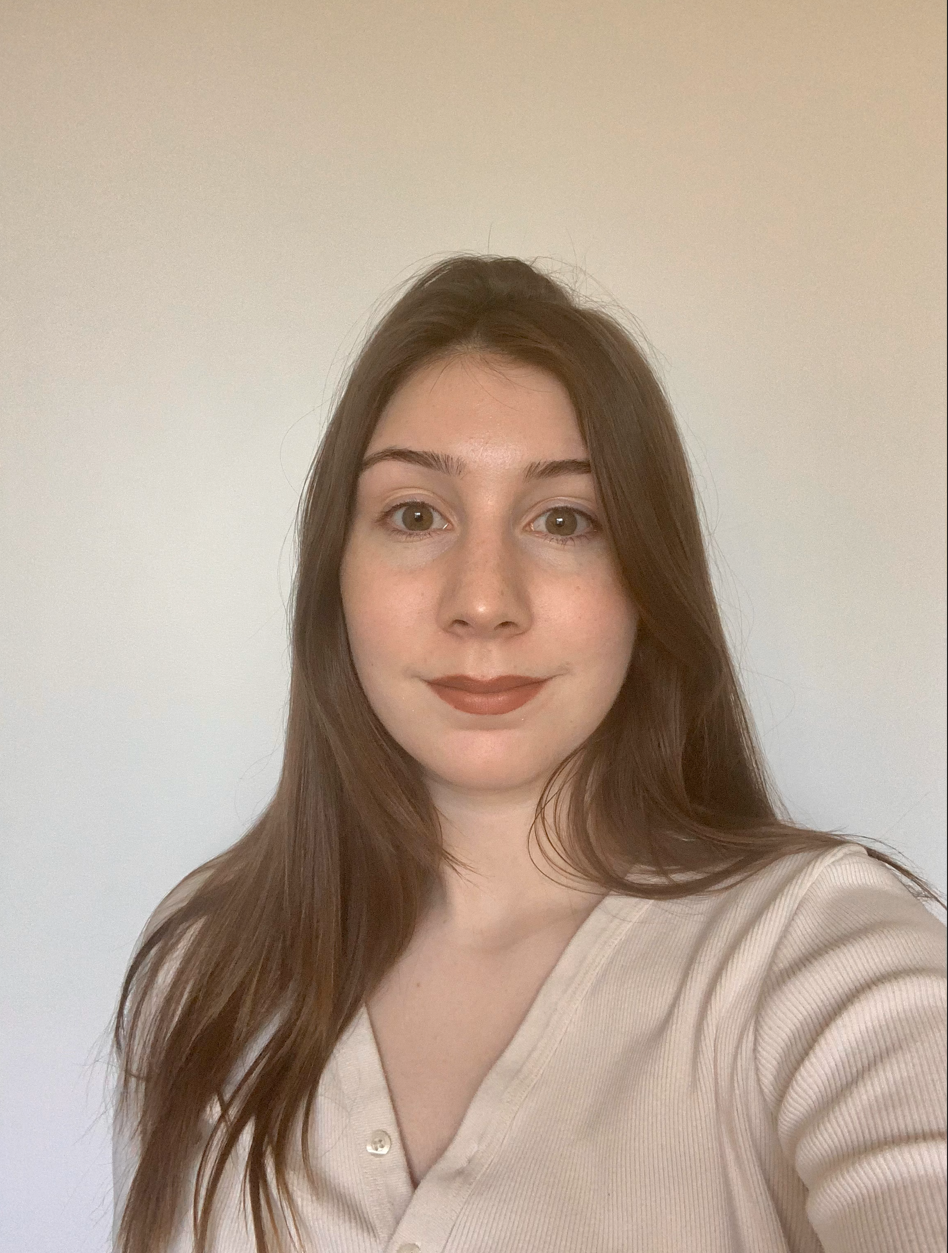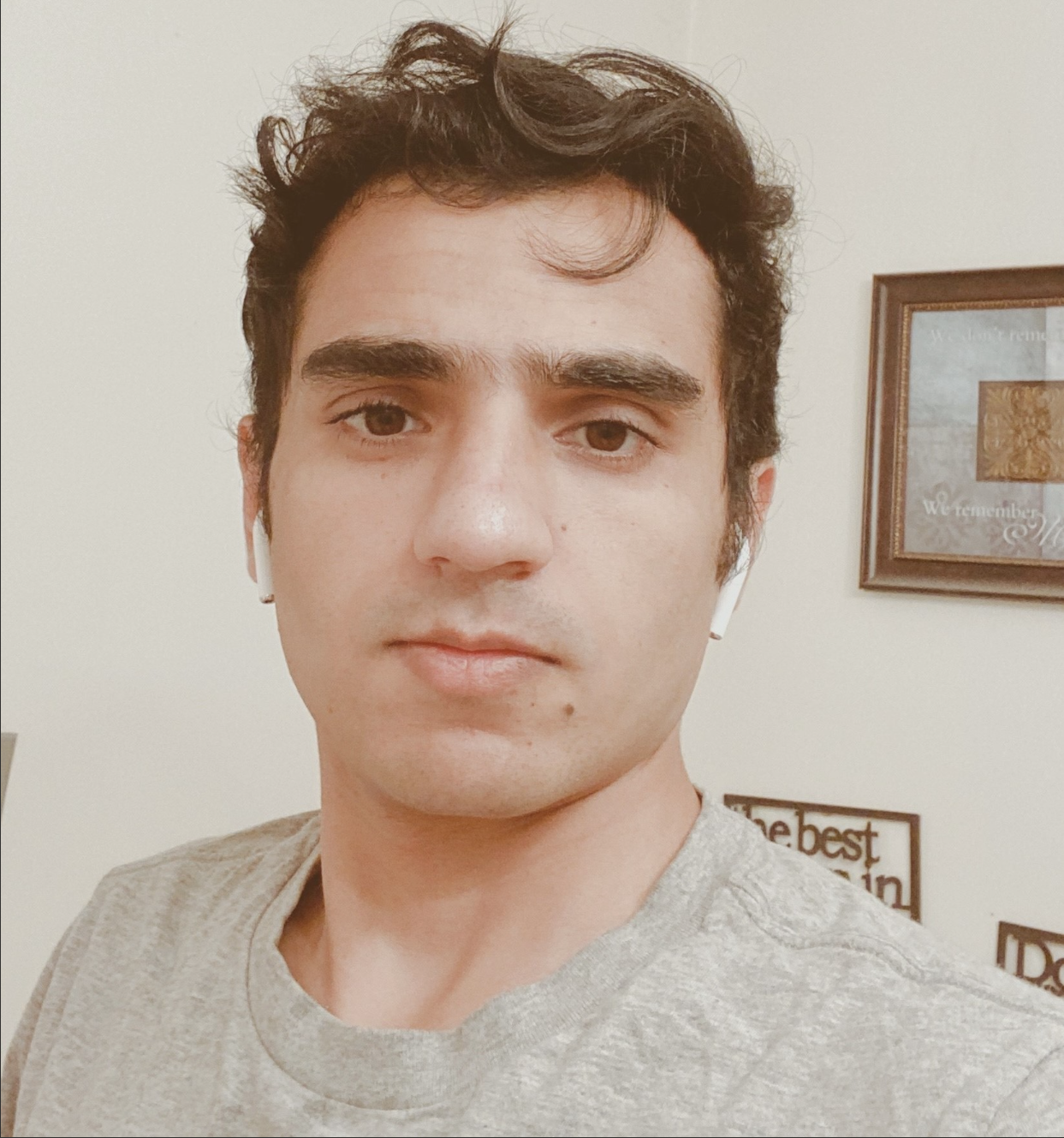Our annual capstone event showcases the best emerging scholar presentations from across Canada. All laureates are nominated by CDSN co-directors and partners and selected by committee based on diversity of research and scholars.
This year’s capstone was hosted by Co-Directors Dr. Alex Moens & Dr. Will Greaves in partnership with the team at the NATO Field School!
For information on past Capstone events, with videos in French and English, visit our Laureates page HERE
Laureate Bios
Dr. Madison Schramm
“Leader psychology and conflict decision-making; and gender and leader selection and removal dynamics”
Madison Schramm is an Assistant Professor in the Department of Political Science at the University of Toronto and a Non-resident Senior Fellow in the Reimagining US Grand Strategy Program at the Stimson Center. Previously, she has held positions with the US Army War College; Carnegie Mellon University; the University of Notre Dame; the Georgetown Institute for Women, Peace, and Security; the Council on Foreign Relations; the Berkley Center for Religion, Peace, and World Affairs; Yale University's Political Violence FieldLab; and the RAND Corporation.
Schramm received her PhD from Georgetown University in Government (2019) and her research focuses on international security, the domestic politics of foreign policy, political psychology, and gender and foreign policy. She has published peer-reviewed research exploring gender and conflict initiation (Security Studies), democratic constitutional systems and conflict (Political Science Quarterly and the Journal of Global Security Studies), and diversity and inclusion in post-conflict states (in Untapped Power, Oxford University Press 2022). Her commentary and reviews have been published in Foreign Affairs, Perspectives on Politics, the Texas National Security Review, the Atlantic, the Christian Science Monitor, Inkstick, H-Diplo, the Duck of Minerva, and CFR.org and her research and analyses have been cited in the New York Times and the Jerusalem Post.
Faith Ezeazolo
“Exploring the Root Causes of the Lack of Coping Capacity in Ontario First Nations"
Faith Ezeazolo is an Emergency Management Coordinator with Lands and Economic resources at Anishinabek also known as (Union of Ontario Indians). I have over 7years experience as an Emergency Manager with a Master’s degree in Disaster and Emergency Management from York University.
Originally from Nigeria with a degree in sociology and an interest in understanding societal problems and how to alleviate human suffering.
My interest in Emergency management stems from experiencing flooding while growing up, our home was usually flooded every other year because of living in hazard prone area. Hence, I grew up desiring to make a change through creating awareness, education and promoting preparedness for undeveloped communities.
I hope to impact First Nation communities Emergency planning ensuring that they are not exempted/overlooked from future Nationwide Emergency planning with considerations for its culture, people and beliefs.
Claire Parsons
"Quality over Quantity: Reducing the Recruitment and Retention of the Radical Far-Right in the Canadian Armed Forces."
Claire Parsons is a researcher with the Centre for International and Defence Policy where she works on quantum technology’s effects on the defence strategies of the Five Eyes alliance. Her research interests pertain to military affairs and international relations. Her Major Research Project focused on reducing the recruitment and retention of far-right radicals, white supremacists, and neo-Nazis into the Canadian Armed Forces. Claire holds a Master of Arts in Political Studies with a specialization in Nationalism, Ethnicity, Peace, and Conflict from Queen’s University. She is also the recent winner of the Conference of Defence Associations Institute's research fellowship where she serves as an in-house expert and writer on military affairs. She holds a Bachelor's (Honours) Undergraduate degree in Political Studies and a Certificate in Law from Queen's University.
Sonja Maul-Wilson, BA, CD (she/her)
"Expanding Our View of Canadian Military Families"
Sonja is a Master of Public Administration (MPA) candidate at the University of Victoria (UVic). She is the recipient of the Transforming Military Cultures (TMC) Network Research Scholarship (2023), the William G. Bender Scholarship (2022), and two UVic Graduate Awards (2021 & 2022). Alongside her academic pursuits, Sonja dedicates her time to serving as a board member for the not-for-profit, Women in Defence and Security (WiDS). Before embarking on her graduate journey, she served as a Naval Warfare Officer in the Canadian Armed Forces for 15 years. During her service, she participated in various international missions, including anti-drug smuggling operations, UN sanctions enforcements, and diplomatic missions in the Indo-Pacific region. She also conducted surveillance and sovereignty patrols in diverse locations, including Canada's Arctic. Sonja was honoured with a Command Commendation during her military career.
Marianne Grenier
"Cyber threat intelligence insight into ransomware attacks against Canadian healthcare."
Marianne Grenier is a Cyber Security Specialist currently working as an Incident Handler. Her research focuses on cyber attacks against critical infrastructure, international security regimes, and cyber threat intelligence. She holds a bachelor’s degree in Sécurité et études policières from the Université de Montréal and a master’s degree in Strategic Studies from the University of Calgary. She is particularly interested in studying new and evolving security challenges resulting from emerging technologies.
Claire Dickson
"The Digital Panopticon: Genocide in the Age of Artificial Intelligence"
Claire Dickson is a second-year Master's student at the University of Calgary’s Centre for Military, Security and Strategic Studies. Her research investigates the intersection between genocide and technology, specifically the impact it may (or may not) have on the future perpetration and prevention of genocide. By focusing on advanced surveillance techniques employed by the Chinese Communist Party against Uyghur and Muslim minorities from the Uyghur Autonomous Region (Xinjiang), she hopes to shed light on the new and invasive methods states and actors have found to subjugate, dehumanize and eradicate populations who have been deemed “problematic” or "undesirable."
Charlotte Hook
“Canada’s role in Space Security”
Charlotte Hook is an MA Political Science student at the University of British Columbia and a Junior Fellow at the Outer Space Institute. Her research focuses on outer space policy and law, particularly on outer space security.
Her involvement with the Outer Space Institute has led her to work on topics like space mining, planetary defence, the risks of debris from uncontrolled reentries, and domestic licensing procedures. Charlotte hopes to continue this work throughout her MA and in particular hopes to highlight the link between outer space security and the preservation of the outer space environment.
Husnain Iqbal
“Systemic Drivers of State Formation: China's Rise and Politics of State Consolidation in Pakistan's Balochistan Province.”
Husnain Iqbal is a PhD Candidate in the Department of Political Science at the University of Victoria. His research investigates the intersection of systemic rivalry, politics of state consolidation, and foreign policy decision-making. Empirically, Husnain traces the strategies and instances of state-building in Global South states in response to changes in the global distribution of capabilities. Drawing from his doctoral dissertation, his CDSN Capstone presentation offered an in-depth case study of Pakistan’s efforts to consolidate its restive province of Balochistan within the context of China’s rise as an emerging potential superpower.'


